JUNE 2024 ISSUE #15
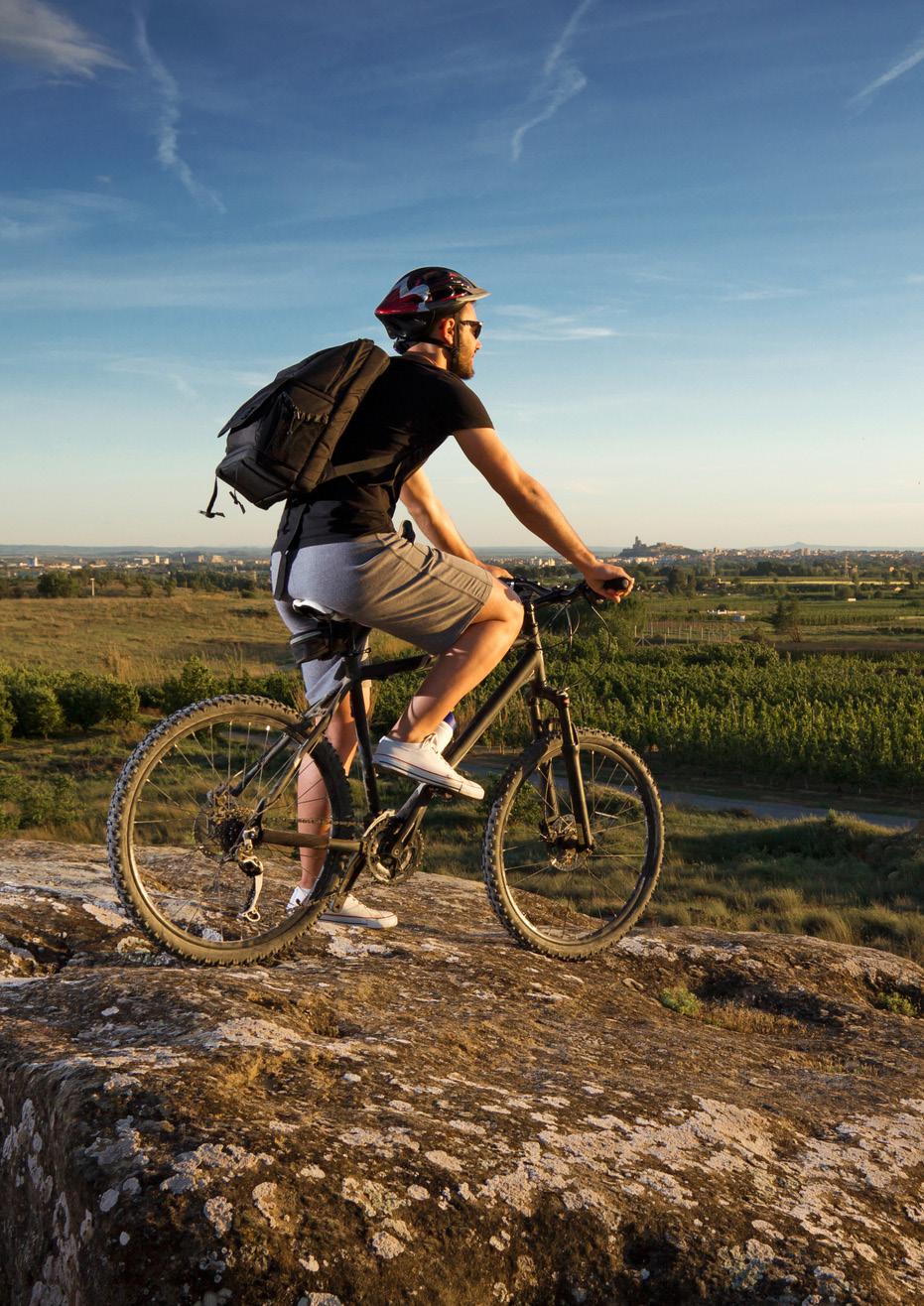
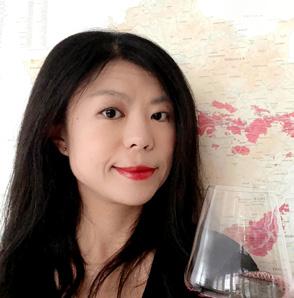

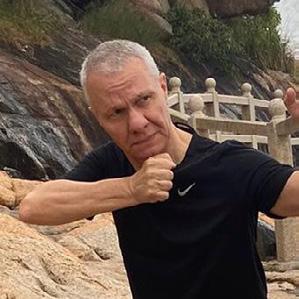


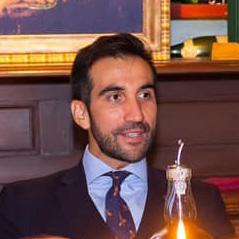 MEDITATION, MARATHONS AND EXERCISE
João Pires MS, Myles Trapp, Bobby Stuckey MS, Gustavo Devesas
JIACHEN LU, YANNICK BENJAMIN Guest Editors
MEDITATION, MARATHONS AND EXERCISE
João Pires MS, Myles Trapp, Bobby Stuckey MS, Gustavo Devesas
JIACHEN LU, YANNICK BENJAMIN Guest Editors

JUNE 2024 ISSUE #15






 MEDITATION, MARATHONS AND EXERCISE
João Pires MS, Myles Trapp, Bobby Stuckey MS, Gustavo Devesas
JIACHEN LU, YANNICK BENJAMIN Guest Editors
MEDITATION, MARATHONS AND EXERCISE
João Pires MS, Myles Trapp, Bobby Stuckey MS, Gustavo Devesas
JIACHEN LU, YANNICK BENJAMIN Guest Editors


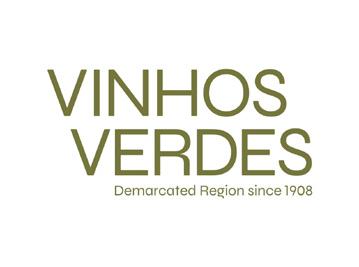
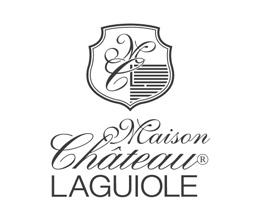




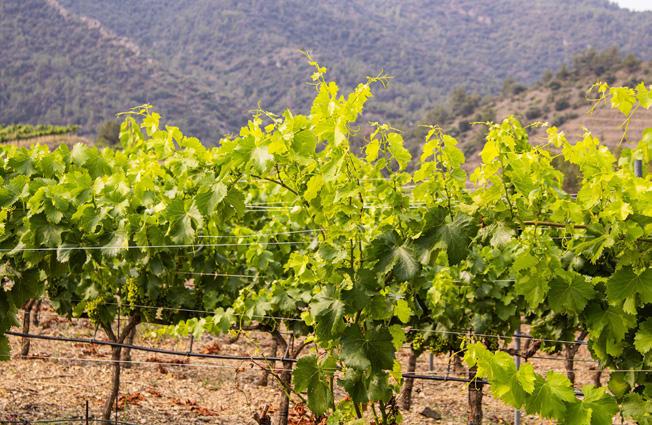

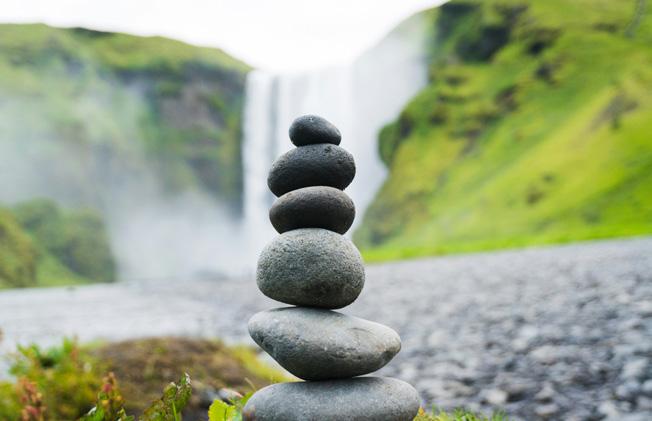
Published by: Association de la Sommellerie Internationale
Editor, Content Manager: Mark DeWolf
Partnership Management: Ana Sofia Oliveira
Marketing & Communication: Xeniya Volosnikova
Administrative Assistant: Claire Monnier
Copy Editing: Nina Basset
Translation: Michèle Aström Chantôme, Manuel Negrete
Design / Layout: Carissa Botha
Photography: 123RF, Jean Bernard, Hakan Burcuogli, Magali Butny, Mikhail Lipyanski, Alan Martin, Perry Jackson, Sören Polonius, Philipp Lipiarski, iStock, Unsplash
Cover Photo: Cycling and running are ways many sommeliers keep their life in balance
Contributors:
Paolo Basso, Yannick Benjamin, Gustavo Devesas, Mark DeWolf, Doug Frost MS MW, Kristi Linneboe, Jiachen Lu, Franck Massard, Miyuki Morimoto, Joseph Mounayer, Rajat Parr, João Pires MS, Sören Polonius, Martynas Pravilonis, Fabrice Sommier, Bobby Stuckey MS, Toru Takamatsu MS, Natalia Torres, Myles Trapp, William Wouters
ASI Executive Board
President: William Wouters
Secretary General: Beáta Vlnková
Assistant Secretary General: Ivo Dvorak
Treasurer: Philippe Faure-Brac
Assistant Treasurer: Samuil Angelov
Vice-president for Asia & Pacific: Saiko Tamura-Soga Vice-president for Africa & Middle East: Michèle Aström Chantôme
Vice-president for Europe: Piotr Kamecki
Vice-president for the Americas: Matias Prezioso
Magazine inquiries: Mark DeWolf, ASI Content Manager markdewolf@asi.info
General Inquiries: www.asi.info | info@asi.info
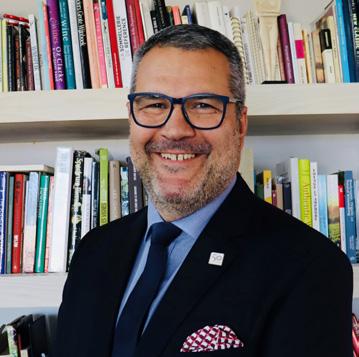 TWilliam Wouters, President ASI
TWilliam Wouters, President ASI
he lives of sommeliers can be intense. Daytimes are often booked with supplier meetings, staff training sessions, and inventory management. Evenings spent in the dining room, making recommendations, pouring wines, serving cocktails, and generally managing the flow of beverage service. It can all make for full days, and some stressful evenings. Having worked on the floor in the past, I know how important it is to find balance in your life. In this issue of ASI Magazine, we look at the life of sommeliers outside of the restaurant doors.
We talk to sommeliers such as João Pires MS and Myles Trapp who use spirituality to bring mental clarity to their lives. Others such as Bobby Stuckey MS, Yannick Benjamin and Gustavo Devesas find release in physical activity. Stuckey runs marathons, Devesas is training for Ironman competitions, and Benjamin is a para-athlete. For each, physical activity is a necessity to achieve a level of balance in their life.
For all the pressures of sommelier life, there is an equal amount of passion. So much so that many trade in suit and tie culture, and other professional opportunities, to pursue their love of wine and hospitality. One such person is Jiachen Lu, one of our featured guests this issue.
For myself, and many sommeliers, the best way to relax is by embracing our passion for food and drink in a more convivial way. One
of my great releases is cooking for my family and friends. Away from the hustle and bustle of fine dining restaurants, relaxing at home with a simple meal, an unpretentious bottle of wine and good company are the best counterpoints to the stress of work. In this issue we asked sommeliers to tell us about what they cook at home, and others give recommendations for bars and restaurants in their city, they enjoy on their time off.
I hope you enjoy this edition of the magazine focusing on the lives of sommeliers ‘behind the corkscrew.’ And remember to take the time to enjoy life outside your restaurant doors. A healthy life is a balanced life.
“For all the pressures of sommelier life, there is an equal amount of passion.”
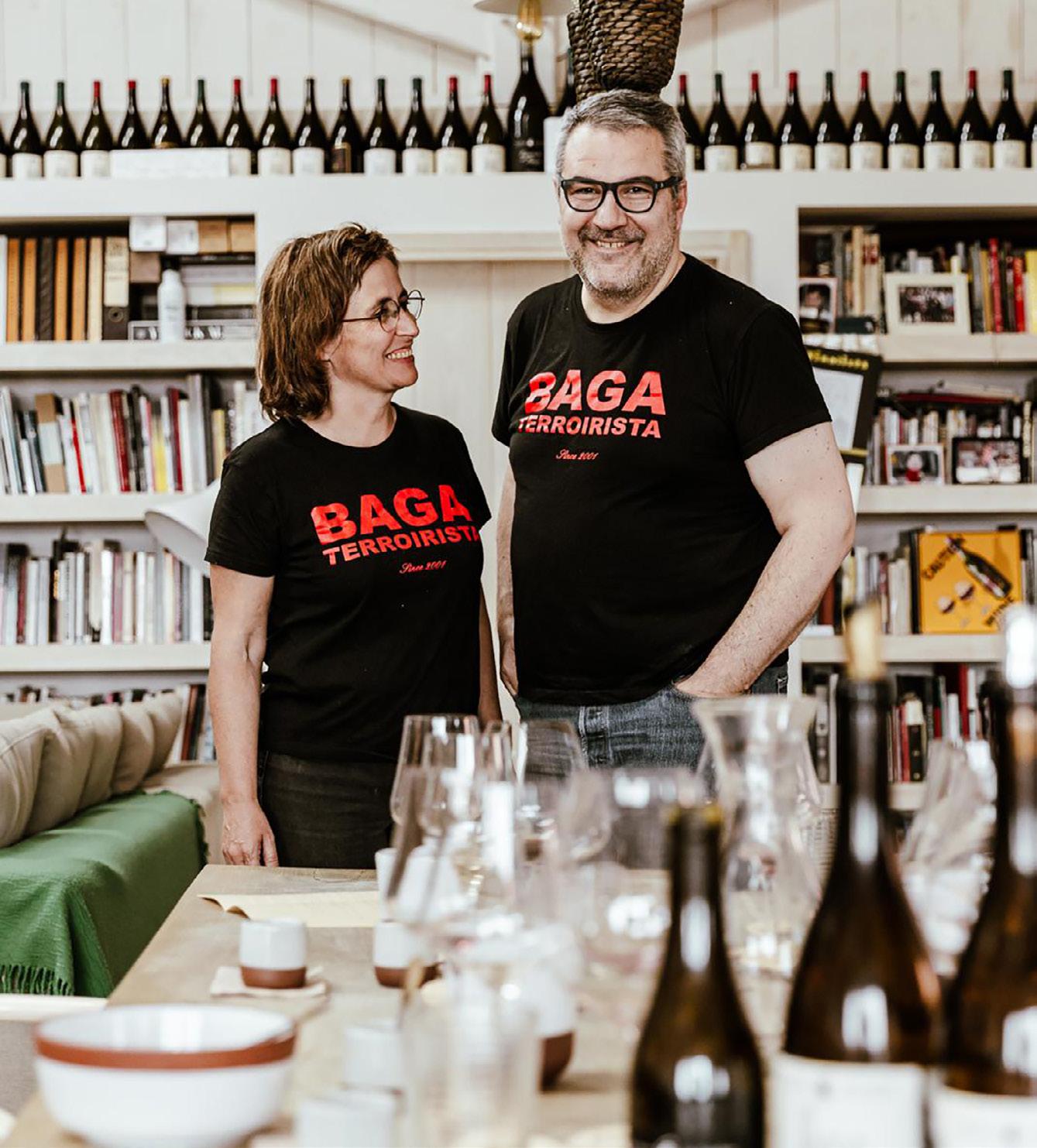

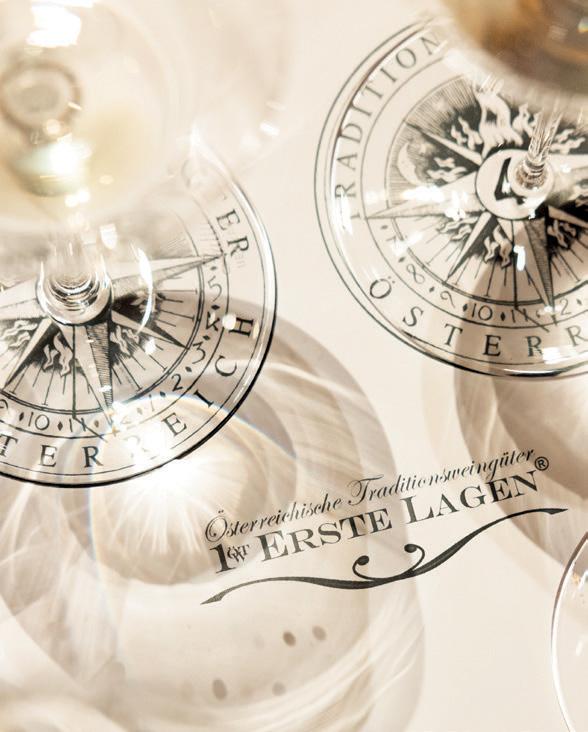


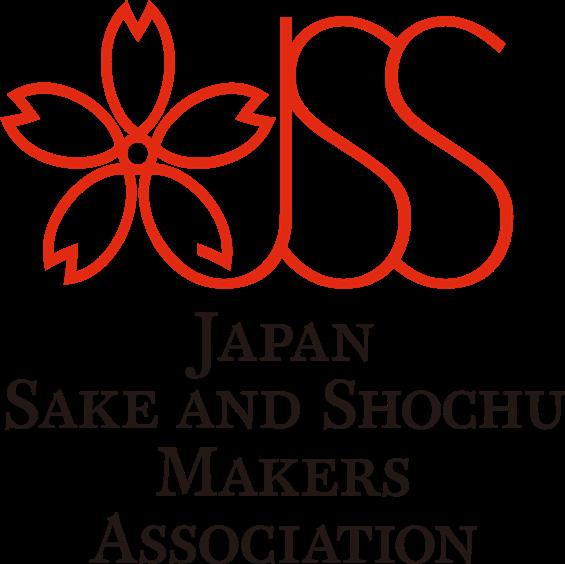
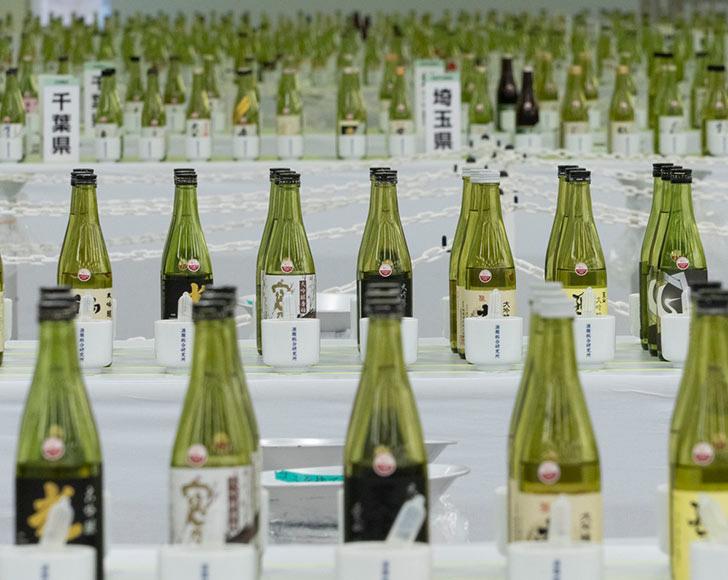
Did
The 16th Japan Sake Fair, organised by the Japan Sake and Shochu Makers Association, will take place on July 5th and 6th, 2024, at Sunshine City in Ikebukuro, Tokyo. This is the world’s largest sake event, where you can taste over 1,000 different sake brands and speak directly with the producers. The booths are arranged by 45 regions, allowing you to discover the unique characteristics and trends of sake from all over Japan. Additionally, there will be tasting services with different sake temperatures and discussions on brewing techniques by the producers.
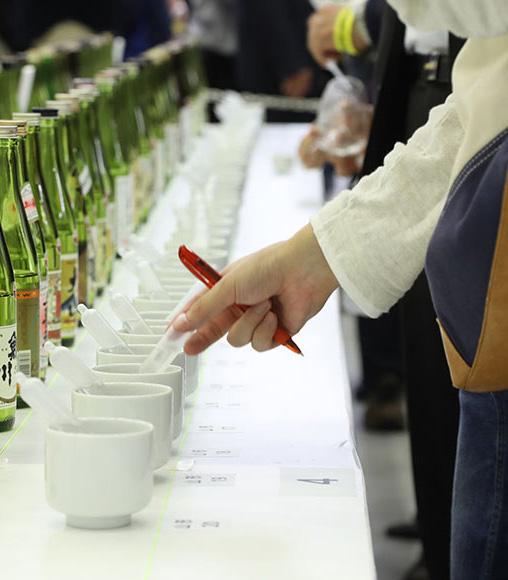
In conjunction with this fair, the open tasting of around 390 prize-winning Daiginjo sakes from the Annual Sake Awards 2024, organised by the National Research Institute of Brewing and the Japan Sake and Shochu Makers Association, will also be held. This prestigious competition, which started in 1911, marks its 112th edition this year. The awards for the Annual Sake Awards 2024 were decided through blind tastings by the nation’s experts, evaluating the aroma, taste, and overall quality of Ginjo sake produced only between July 2023 and March 2024. This will be the only occasion for the tasting to be opened to the public.
The tickets for these events will be available to sake aficionados and professionals worldwide. This is a unique opportunity to experience the current state of sake, and we look forward to welcoming many visitors. If you can’t make it this year, please mark your calendars for the JSS Sake Fair 2025, which will be held in June next year. Don’t miss out!
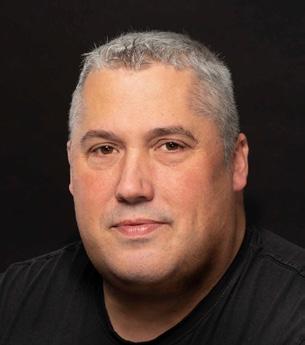 Mark DeWolf Content Manager, Association de la Sommellerie Internationale Editor, ASI Magazine markdewolf@asi.info
Mark DeWolf Content Manager, Association de la Sommellerie Internationale Editor, ASI Magazine markdewolf@asi.info
Welcome to Issue 15 of ASI Magazine. In this issue we explore the lives of sommeliers outside of the restaurant, wine shop, or tasting room they work in. Twenty years ago, I traded in my life as a restaurant sommelier for a life as an educator, journalist, newspaper editor, recipe developer, sometimes food stylist, serial entrepreneur, and longtime sommelier association volunteer. All the while welcoming three children into my life. My oldest is now in her second year of university, clearly evidenced by the number of grey hairs that rest upon my head.
While I gave up the daily routine of inventory, scheduling, staff training, and wine service, my life continues to be guided by the ethos of sommellerie: make people happy with food and drink. It’s a principle I use at work and at home. It does not matter if I am guiding people on a wine and food tour somewhere around the world, cooking and
serving food and wine for my wine club members or simply having a night at home with my partner Tracy. As I say about current and past sommeliers, you can take us off the restaurant floor, but ‘you can never take away our passion for food, drink and service.'
As you flip through the pages of this edition you’ll discover a lot about the personal lives of some great sommeliers around the world. You may also see the tag ‘ASI Mag Regional Correspondent’ next to some of their names. We are now in our third year of producing ASI Magazine. We’ve featured sommeliers from more than 60 countries to date, but as many sommeliers as we feature there are always more out there doing great work that need to be recognised. We’ve identified ASI Regional Correspondents in various parts of the world to help share the stories of sommellerie in their region. This issue we welcome Myles Trapp, a California-based

sommelier who will be our ASI Regional Correspondent in Western North America, Yannick Benjamin MS covering East Coast North America, Buenos Aires based Natalia Torres who will be responsible for keeping us up to date on what’s going on in Argentina, Chile and elsewhere in South America. Finally, Joseph Mounayer from Lebanon who will be keeping us advised of activities in the Middle East. We’ll introduce even more ASI Regional Correspondents, next edition. If you are a budding wine writer, a sommelier socialite, or just somebody that has a yearning to share stories about sommeliers in your part of the world, contact me to discuss the opportunity of becoming an ASI Regional correspondent too.
Cheers
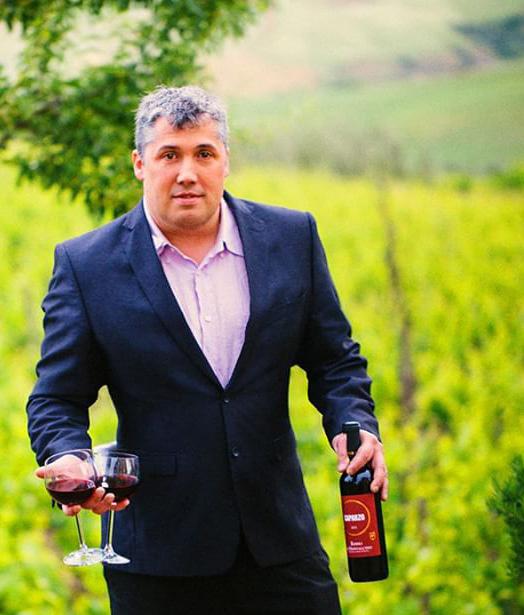

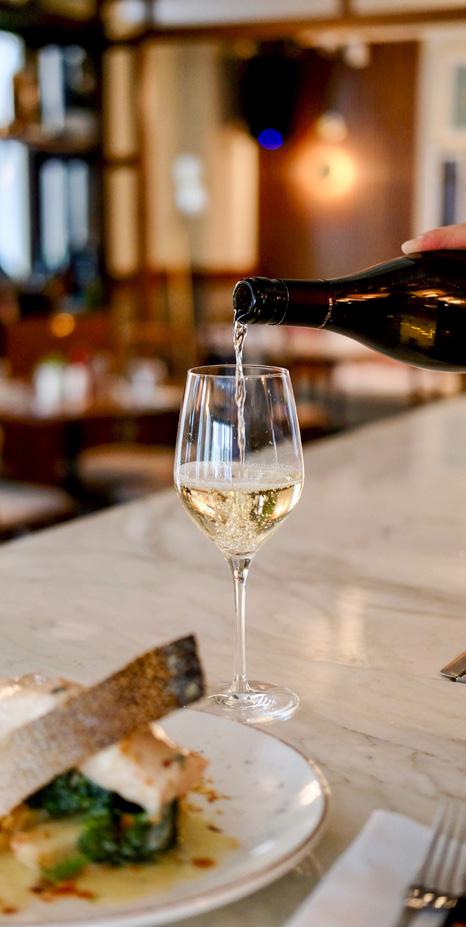
Jiachen Lu grew up in Beijing before moving to Chicago for university. Chicago holds a special place in her heart, having called it home for many years. She went through graduate school and law school there, and it was in Chicago where she faced the hardest parts of her education. After passing the Illinois bar exam, she decided to challenge herself further by taking the notoriously difficult California bar exam, and later the Florida bar exam. She practised law in both Chicago and Florida.
“As a sommelier, I’m trying to bring people together and make everyone happy, which makes me happy.”
In 2018, after six years practising law, she decided to take six months off, inspired by the concept of a gap year. She attended Le Cordon Bleu in London, graduating with a Diploma of Wine, Gastronomy and Management, which led to internships at The Little Nell in Aspen and Michel Roux Jr.’s famed Le Gavroche in London.
This passion for food and cooking ultimately led her to take the full leap and explore the hospitality industry as a career. Lu is currently the Head Sommelier at CORD by Le Cordon Bleu in London and was recently admitted to the Master of Wine programme.
Jiachen LuASI: When you made that decision to take a break from law, did you envision making a career change?
Jiachen Lu (JL): No, it was just for fun. I was never thinking about a profession in hospitality. In late 2017, I discovered Le Cordon Bleu in London had a six-month wine and gastronomy programme. Only one month in, I told myself, ‘I'm going to get into the wine industry.’ At the time, I thought it would be the winery, winemaking side. I never thought about working on the floor. When I finished my programme in September, it was too late to work a harvest, so my instructors asked me if I’d be interested in doing an internship at The Little Nell in Aspen, Colorado. They had a reputation for the best wine programme in the US, so I said, “of course I would do that.” After three months there, I realised I could become comfortable talking to customers and I really enjoyed the food and wine side of the wine world. In 2019, I came back to London. I joined Le Cordon Bleu again, this time for the full ninemonth culinary programme. It was at this time I did my introductory, certified sommelier programme, and started studying for the WSET Diploma. After the programme, I interned at Le Gavroche, in the kitchen, not on the floor. Then COVID, and the lockdown, happened, so I moved back to the US to practise law. Working as a lawyer does, after all, pay the bills.
ASI: What brought you back to London and sommellerie?
JL: I kept thinking about getting into the industry, so I kept on pushing via studying. In 2022, I was in London doing some exams. A common friend wanted to meet me. I went to the restaurant to meet for what I thought was going to be a casual chat. At first, we talked, we laughed. An hour later, he asked me, “When can you start?” I wasn’t sure. There was a lot to do. I went home to think about everything. It was my mum who actually said, ‘you
have to start somewhere, right?’ I decided to get my hands dirty. I took that job, and I started at the end of September 2022. That was my very first job in hospitality and as a sommelier. I worked there until March of this year, before moving to my current position.
ASI: How did your family react to your career change?
JL: At first, of course, it was a bit of a shock, and not just because I come from an Asian family. My mum used to tease me, saying, “I put you through college, graduate school, law school, and now you just want to eat and drink for a living.” They are happy now.
ASI: Did you feel like your law educational background was an advantage for you with respect to studying for sommelier certification?
JL: Of course, the critical thinking, the attention to details, and the ability to put myself in front of a computer to study weren’t new to me. The theory part was not difficult for me. I also spent a few years working in front of a judge, which has made convincing some customers to try some new wine fairly easy. Working in law meant I was also used to working at a fast pace, talking to a lot of people. That experience didn’t hurt my ability to get out of some uncomfortable situations, which we all know does happen from time to time as a sommelier. As I see it, everything will come together, in some way, for the benefit of my career. How and when? I'm not exactly sure, but I know that everything I learned will not be a waste of time.
ASI: Does your background influence how you evaluate and describe wine?
JL: It depends on who I'm talking to, but I would say I actually prefer to bring out the romance of food and wine. At the end of the day, food and wine create pleasure and joy, even at the hardest moments
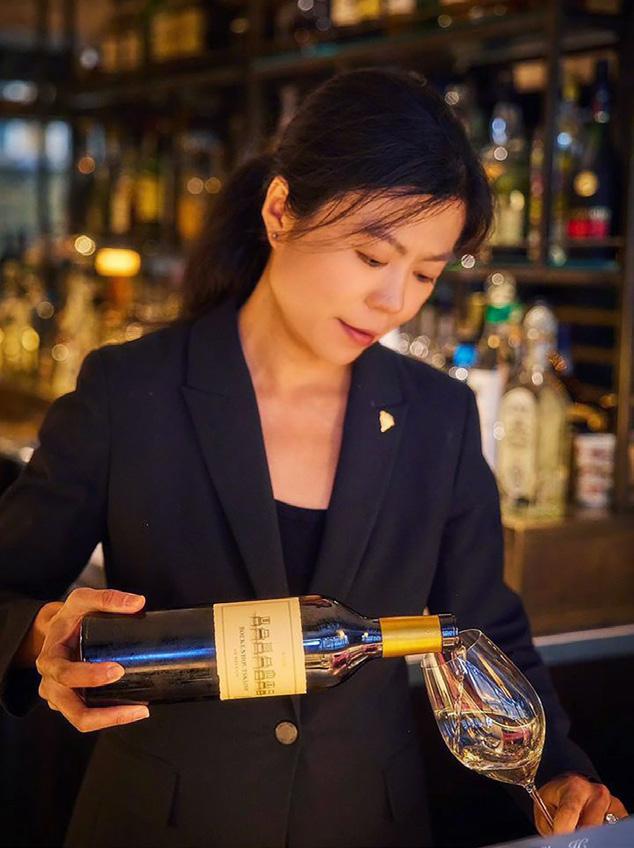
of somebody's life. What do we do after the funeral? We eat and drink. So, that's another thing I really enjoy about what I'm doing now because, to me, law separates people. There is hardly ever a true winner in a lawsuit. As a sommelier, I'm trying to bring people together and make everyone happy, which makes me happy.
ASI: Do you ever see yourself merging law with your love of wine and sommellerie?
JL: I’ve been asked if I would consider doing some consulting work for wineries in terms of policies and rules. But I ask myself, ‘is that something that I am really passionate about?’ The answer: it isn’t. On a Saturday morning when I have time to sit down with my morning coffee, do I reach for a food and wine magazine or the law journal? Obvious answer. There are things potentially I can do to combine law and wine, but it is not something that is at the top of my priority list. Perhaps later in my career, as working on the floor becomes less sustainable as we get older.
Down the road, I am more focused on education. That's one of the reasons that I took this position with Le Cordon Bleu. In the future, I should potentially have more opportunities to explore that side of the wine industry.
With Yannick Benjamin
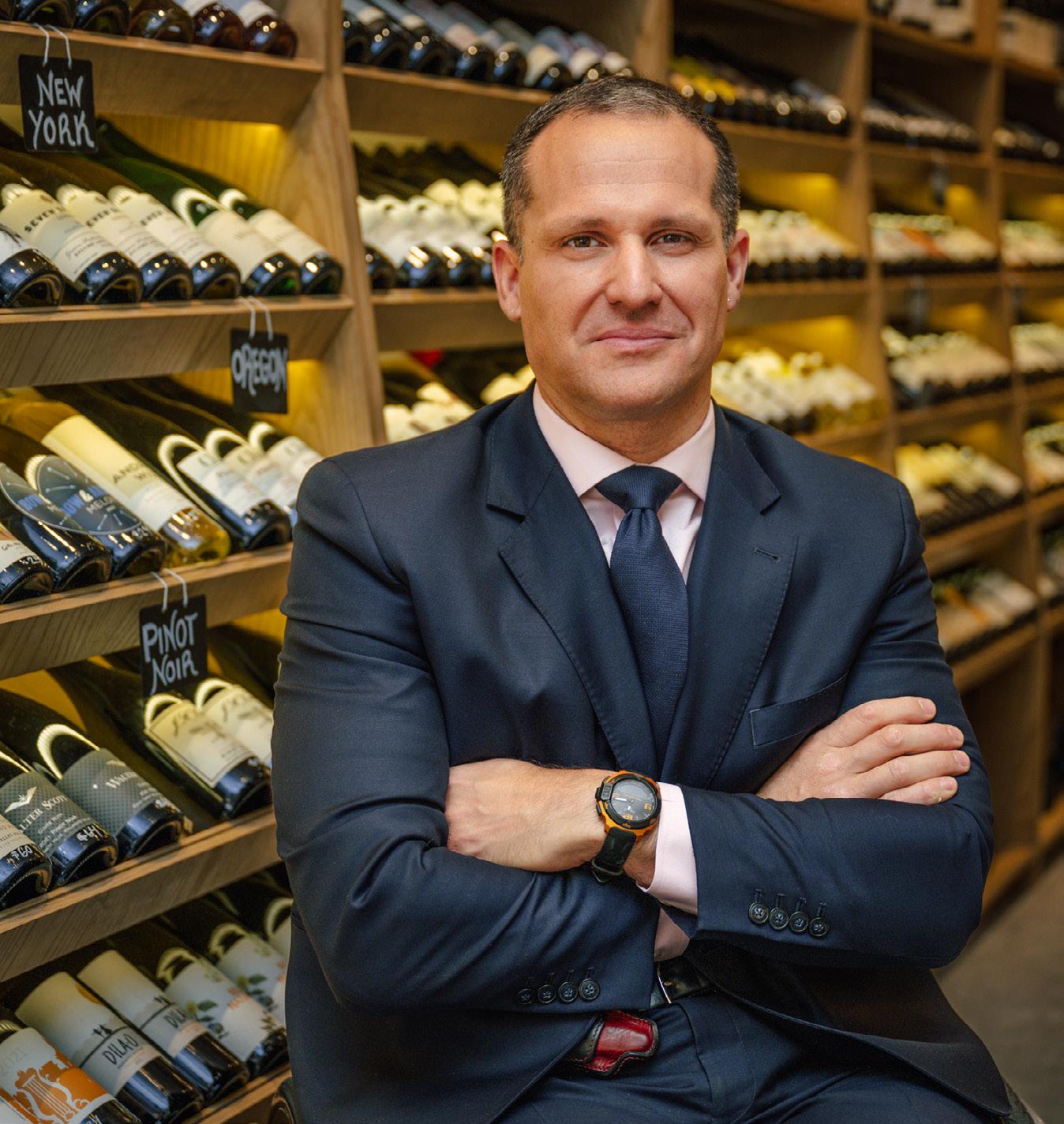
Yannick Benjamin, a New York City-based sommelier and para-athlete, is the co-founder, along with his wife Heidi Turzyn (herself an impressive story of ballerina turned sommelier), of Contento Restaurant in East Harlem and Beaupierre Wines & Spirits in Hell’s Kitchen. These family businesses emphasise inclusivity, diversity, and sustainability. Despite being paralysed from a car accident in 2003, Benjamin pursued his dreams and has worked at prestigious establishments such as Le Cirque, Jean-Georges, Felidia, and Atelier at the Ritz Carlton. He co-founded Wine on Wheels, an organisation of wine lovers and sommeliers supporting charity. Contento, with the ethos “accessible for all,” exemplifies quality hospitality with an inclusive approach. Recognised among Wine Enthusiast’s Top 40 under 40 and named Person of the Year by New Mobility Magazine in 2017, Benjamin has appeared on “On The Town with Michael Riedel” and starred in “Uncorked” on Esquire TV. Praised by Jancis Robinson and The Wine Spectator, his journey and the success of Wheeling Forward have been featured in prominent publications like the Wall Street Journal, Financial Times, and Forbes. In 2021, he was honoured as Sommelier/Wine Director of The Year by Wine Enthusiast Wine Star Awards.

ASI: Being born in New York to French parents, is it fair to say food and wine are in your DNA?
Yannick Benjamin (YB): Yes, but I would say I was born into hospitality because my entire family has worked in the front of the house. Even after a week at work, on weekends they would host people at our apartment. My parents were incredibly gracious and generous hosts.
ASI: Given your parents' background, did you always aspire to be in the hospitality industry?
YB: I never thought of doing anything else, even if my parents, as French immigrants, probably would have preferred me going into the world of law, medicine, finance, or politics. They had that immigrant mentality of work hard, so your kids are provided with a better life. That said, they were very, very supportive, and obviously, they saw how happy I was working in the hospitality industry. I always wanted to do something where
Yannick BenjaminI can give myself to help elevate other people's lives. I was very impacted by the Christian brothers who I grew up with while attending Catholic school. This concept of servitude, sacrificing oneself for the greater good has remained with me to this day.
ASI: What was your career path?
“If you create and foster an environment, a culture, where people are going to feel safe and respected, they are going to come.”
YB: I worked my way up, from busboy to barback, starting in some small restaurants. My first entry to this world of fine wine and food and this kind of elevated service was at the age of 18 when I got hired by Sirio Maccioni, who was the owner and founder of Le Cirque. This was back in 1997, during its heyday. It was just a crazy time when the internet was just beginning, the stock market was going insane, and there were expense accounts with no limits. Here
I was, an 18-year-old kid from a modest apartment on the West Side of Manhattan. I knew a little about
this life, as my father was a service captain, but until you're entrenched in it, you can’t understand it. There were socialites and celebrities left and right. An after-shift walk from Madison Avenue down to where we lived by the Hudson River on 10th Avenue was quite the dichotomy. At the time, it was just baffling to see people spending thousands of dollars on a bottle of wine. I didn’t even know those wines existed.
ASI: In 2003, when you had your accident, did you take some time off before returning to hospitality?
YB: It happened when I was just 25 years old. At that moment, I had accepted that I was never going to walk again. I remember calling the general manager and wine director at the restaurant that I was working at the time, Atelier, and asking for the dining room layout. I was already thinking if we move a table or two, then I can get through with the wheelchair. I spent a few months in rehab, and all I could think about was how I could work in a restaurant in a wheelchair. So I practised how to balance myself while pouring, for example. I was of the mindset that I'm going to beat this. Of course, there were moments when I felt defeated because I didn't fully understand
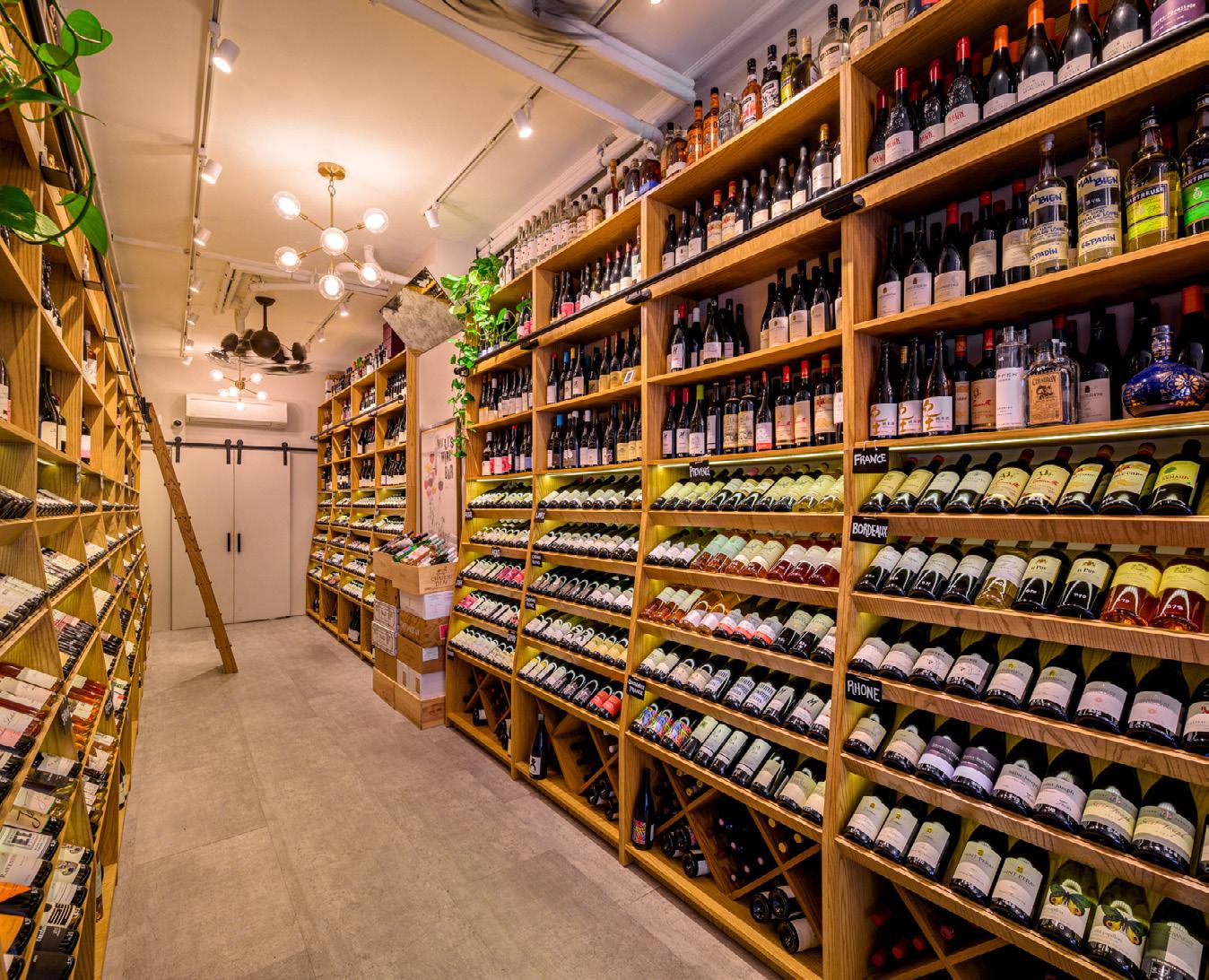
the challenges that awaited me out there. There are many things out of your control, such as broken elevators and how society views you.
ASI: When you came back to restaurants, did it open your eyes as to how inaccessible restaurants were?
YB: It had never dawned on me previously how all these little details, such as bathroom accessibility, impact you. Personally, I’ve navigated it well, but the one thing that's truly been taken away from me is spontaneity. I think restaurants are doing a much better job now of accessibility, at least from a physical standpoint, but what is still lagging is social accessibility. That’s the one thing that we can all practise. There are some restaurants in historic buildings which are hard to make accessible. I understand that, but there’s no excuse for not practising social accessibility, which is being aware of the language you use and knowing not everybody that has a disability may look like me. They may be blind, or have an invisible disability, such as a mental disability, depression, anxiety, are HIV positive, etcetera. Further, just because someone may appear to be jumping up and down laughing doesn't mean that they're not in pain or they're not dealing with something. It's very important to be aware of how we're talking to each other, so we can get rid of invisible barriers and practise social accessibility.
ASI: Do you think there is an economic benefit to being accessible?
YB: I think there's an economic benefit, a practical benefit, and there's also an emotional incentive. From an economic perspective, we know globally there's over a billion people that have a disability. Here in the United States, we're close to over 62 million people that identify with having a disability. Within that 62 million, there's over a billion dollars of spending. No one really says it out loud, but it is certainly implied by many that making their restaurant accessible ‘is going to cost a lot of money.
Why am I going to do this because I never see people with disabilities?’ I replied, ‘first of all, you don't know who is and who isn't disabled, and secondly like the old saying goes, but if you build it, they will come.’ If you create and foster an environment, a culture, where people are going to feel safe and respected, they are going to come and they are going to spend money. There’s also the practical aspect. There’s a global labour shortage, yet there is an incredibly high unemployment rate within the disability community. If we started to train these individuals, try to find out what they're good at, and
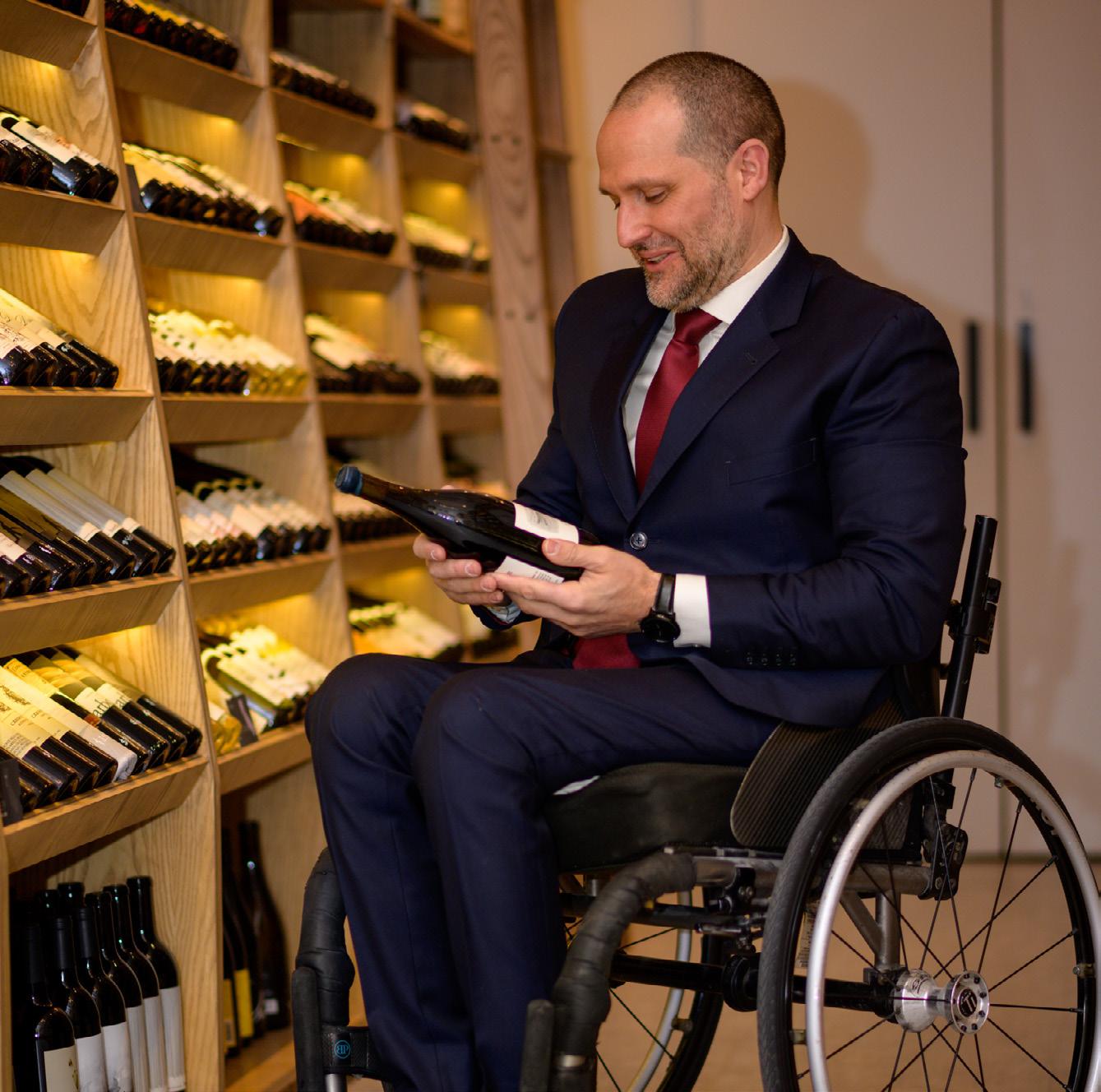
“People with disabilities have a palate, have a nose just like us. They get stimulated by good food, by good wine, by good beverages, just like we do.”
how they can contribute to the restaurant, I can guarantee you, you're going to find people that are going to be dedicated, honoured to have this opportunity, and a sense of purpose. So that's one aspect. Finally, there is an emotional benefit to doing a good thing.
ASI: So how do you put this into practice at Contento and Beaupierre?
YB: The Contento project was simply having the opportunity to open a restaurant that I could work in, without any kind of true obstruction, but also to have a restaurant where people in the disabled community can come to and just really feel like they can be themselves and feel really comfortable. We have people who live an hour away coming to the restaurant, because they know they're going to be treated a certain way, they're going to be understood and that the staff is trained. I give a lot of credit to the staff as they're always willing to learn. The most important thing is creating environments that are going to make you feel comfortable, going to make you happy. It’s never really about table heights and space between tables. It’s simply the knowledge that when at Contento or Beaupierre knowing that everyone is talked to in a friendly way, never talked down to, or never ignored as happens so often in other restaurants and wine stores. Why do people equate having a disability with not having money?
ASI: How important is physical activity to you?
YB: I try to work out every single day. It’s really important to take care of my physical and mental health. Currently, I compete in a couple of marathons a year. Prior to slowing down a little bit, I was more competitive, but now I do marathons for the enjoyment, and to raise money and awareness for the charity that I represent.
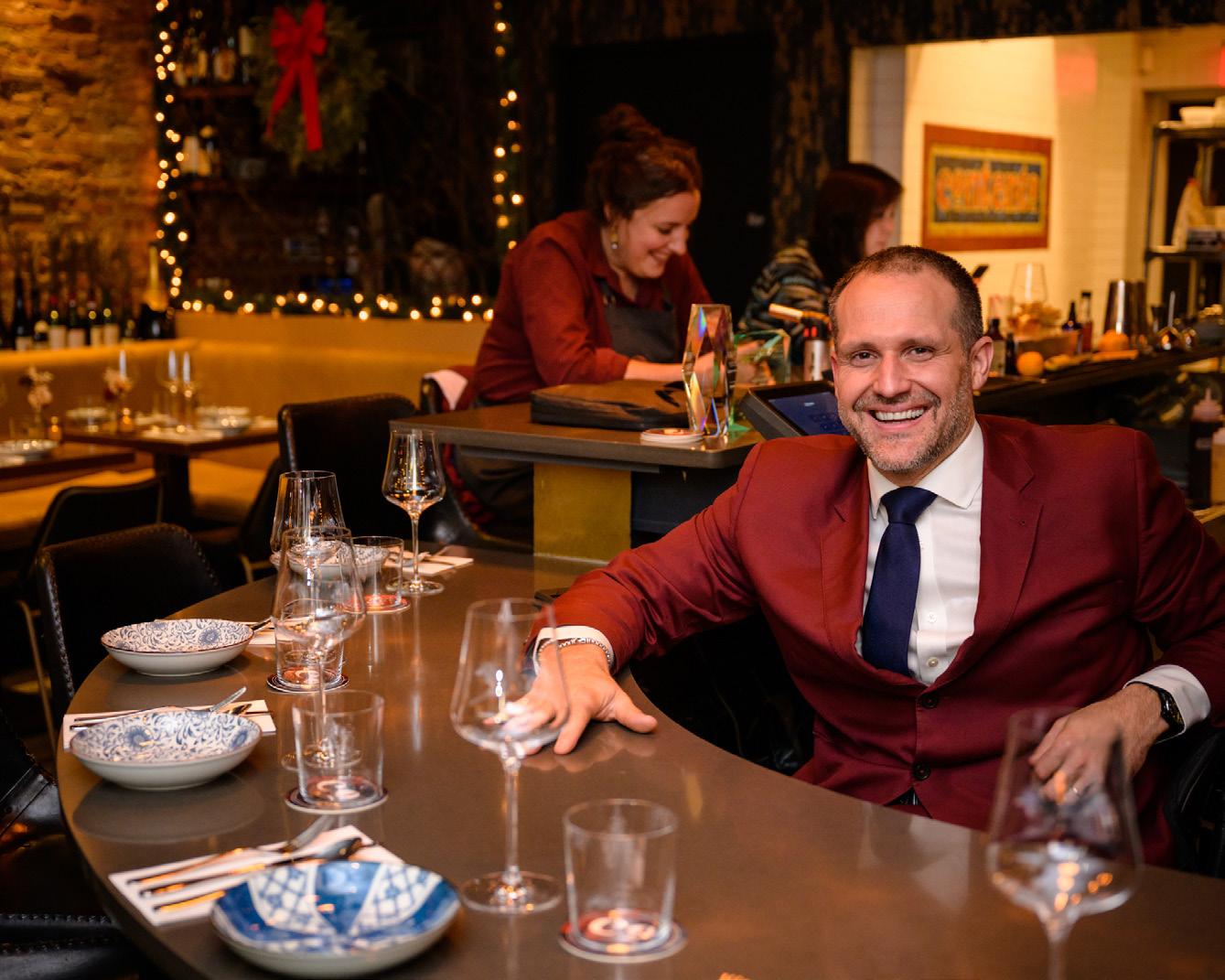
ASI: How does meditation play a role keeping stress under control?
YB: It's a wonderful industry, but there are moments where it can be very challenging. You’re navigating government policies, online reviews, and social media. I think there's really one great quote that I love that I try to repeat to myself daily: ‘Stillness is the kingdom of God, and that place will never abandon you.’ I think that in this industry you have to allocate a certain amount of time of day where you can find that stillness, whether that is meditation, writing, or reading. Breathing exercises are also important.
ASI: How does diet play into your work-life balance?
YB: There are moments when we’ll go out with my wife and friends for a good time, but as I get older, I do not like the feeling of being hungover. It's all about the art of temperance, and moderation. After a long day at work, all I want to do is go back home and read for a little

while. I have the good fortune that a lot of times when I work the floor, that’s when I get to taste wines and have that pleasure.
ASI: Tell us a little about your charity work.
YB: The focal point of Wine on Wheels is to really raise money and awareness about people with disabilities. We also educate the hospitality industry about people with disabilities, encouraging them to hire them. People with disabilities have a palate, have a nose just like us. They get stimulated by good food, by good wine, by good beverages, just like we do. We also have a wellness and physical fitness centre called the Access Project, which offers adaptive martial arts and adaptive boxing. Not only is all the equipment there, but it also acts as a social centre for people with disabilities to come gather, talk to each other, learn from each other, and challenge each other.
In the world of fine wines and gastronomy, the role of a sommelier is often seen as glamorous, filled with sophisticated tastings and highprofile events. However, for many sommeliers, the path to mastering their craft involves not just a deep understanding of wine, but also a profound engagement with spirituality and meditation. Often it takes a deeper understanding oneself to bring the often-hectic world of sommellerie and life after work into balance. Two sommeliers, Myles Trapp and João Pires, exemplify how integrating these practices can enhance their professional and personal lives.
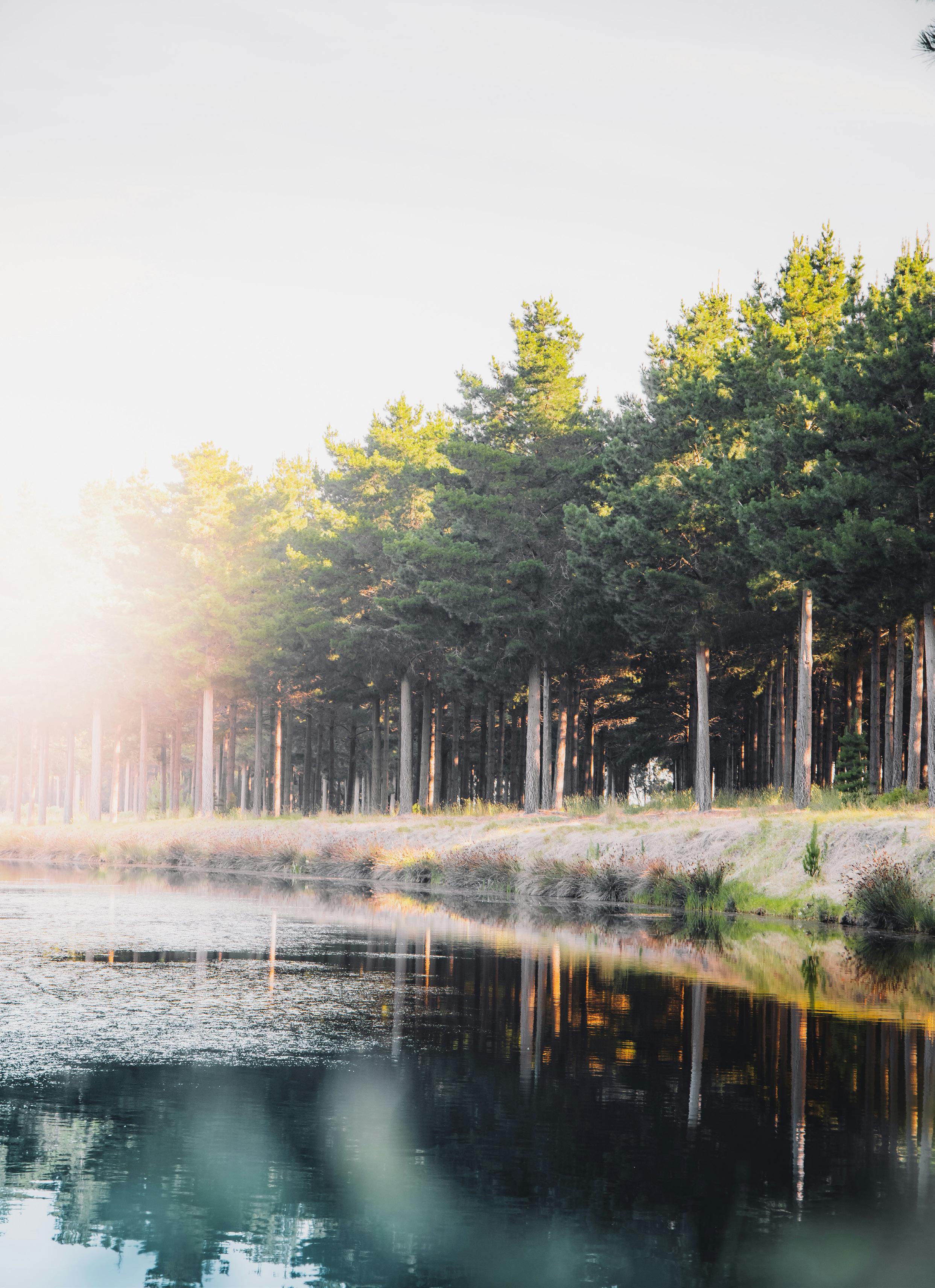
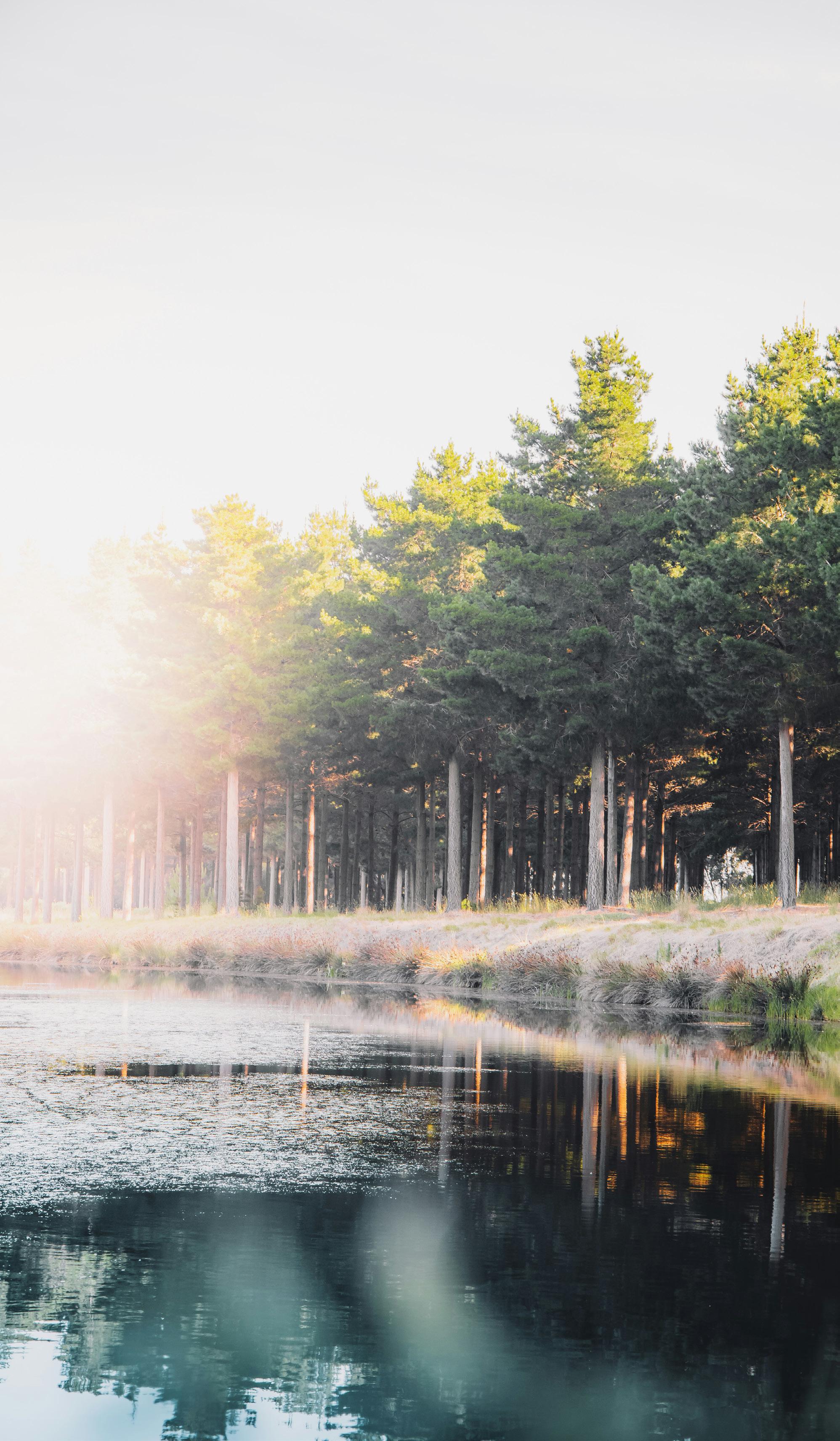

Myles Trapp is a sommelier and an enthusiast of food, travel, and the great outdoors. Becoming a sommelier was not his original intent. Trapp is a graduate of Butler University with a Bachelor’s Degree in Psychology and French, and a recipient of a sommelier diploma from the Université du Vin at Suze-la-Rousse in 2017. Trapp subsequently moved to California’s Napa Valley, where he conducts nightly beverage service at Auberge du Soleil Resort in Rutherford. Currently, he is pursuing the Master Sommelier Diploma with the Court of Master Sommeliers and serves as ASI Magazine’s West Coast, North America correspondent.


ASI Mag Regional Correspondent
João Pires MS is the Director of Wine for Melco Resorts & Entertainment’s properties in Macao, including Altira Macau, City of Dreams Macau, and Studio City Macau. Portuguese by birth, Pires has an extensive career as a sommelier beginning his career in Canada working in Montreal and Toronto, as well as stints in Paris, and Lisbon. In early 2005, he moved to the UK, where he held prestigious roles at the Capital Hotel in London, the Vineyard at Stockcross in Berkshire, Gordon Ramsay’s Royal Hospital Road, and as Head Sommelier at Dinner by Heston Blumenthal at the Mandarin Oriental Hotel in London. In addition to his current role, which he has held for close to a decade, he acts as judge for Decanter’s Asia Wine Awards. João is also a strong believer in meditation, martial arts and practitioner of Kriya Yoga, a spiritual practice that encompasses a range of techniques aimed at accelerating spiritual growth and self-realisation. It is a form of yoga that involves specific meditation practices, breathing exercises (pranayama), and disciplines designed to purify the mind and body. ReadyToWrite
 Myles Trapp
João Pires MS
Myles Trapp
João Pires MS
Myles Trapp: Balancing Yoga and the Wine World
Myles Trapp's journey to becoming a sommelier is intertwined with his exploration of yoga and mindfulness. Initially drawn to France to study psychology, Trapp found himself initially enjoying the simple enjoyment of wine with friends in France, admitting “at the time I had a mild curiosity about wine, but really wasn't very discriminating about what I was drinking.” His journey took a detour as he turned to the US. While working in restaurants in Chicago, Trapp began to be captivated by wine, recognising a lot of parallels, between his wine and French language studies. Before returning to France, where he would enrol in a sommelier programme at the Université du Vin at Suze-La-Rousse. However, before that there was a detour to India, where he immersed himself in yoga. This experience significantly shaped his approach to life and his career in wine.
Trapp speaks about the "push and pull between yoga and the excesses of the wine world." He explains, "One thing about practicing yoga is that it makes you a little bit more aware of what's happening with your body and what's happening with your mind. There is always an interesting dynamic for me between yoga practice and the wine world."
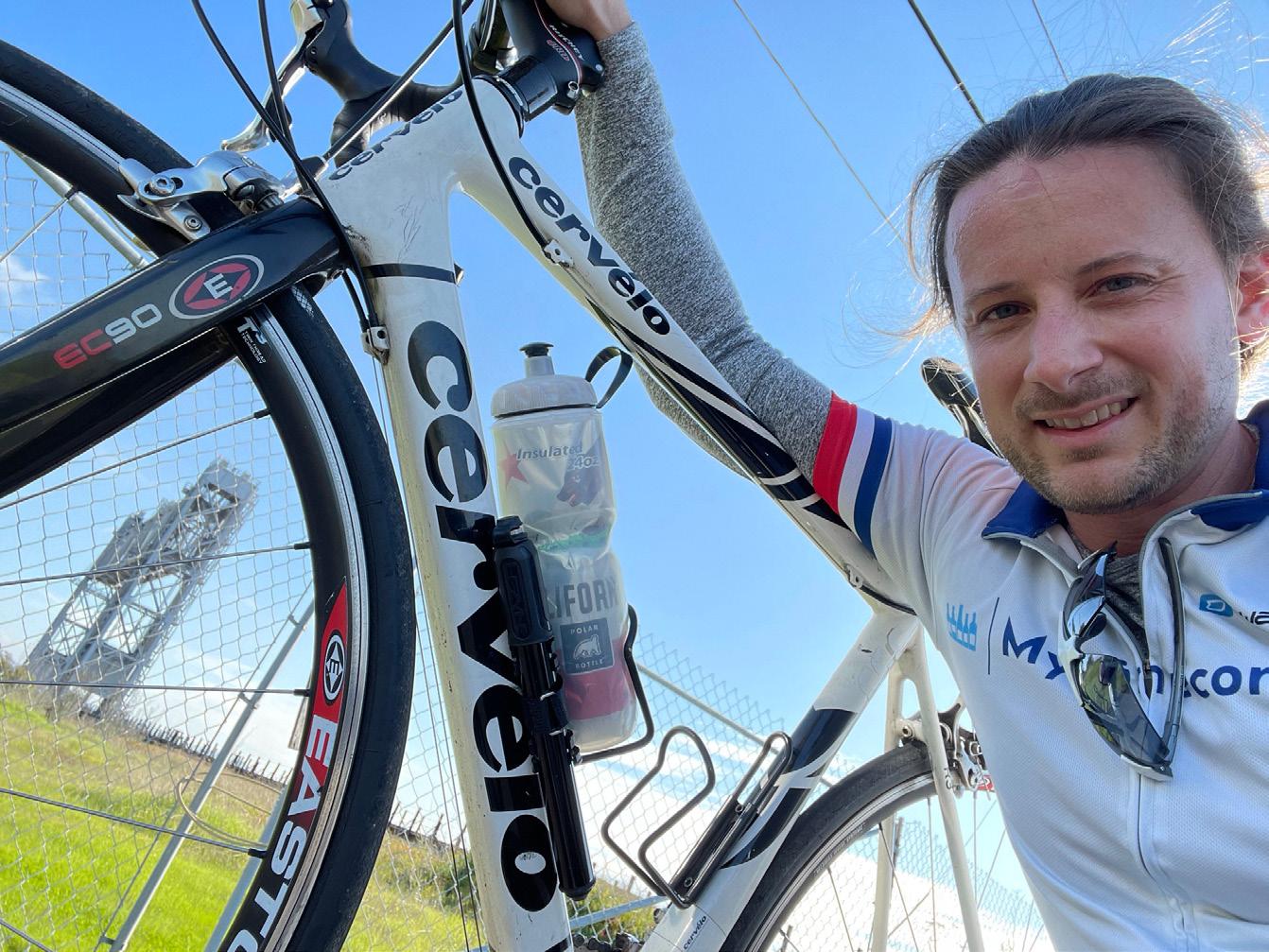
“One thing about practicing yoga is that it makes you a little bit more aware of what’s happening with your body and what’s happening with your mind. There is always an interesting dynamic for me between yoga practice and the wine world.”
– Myles Trapp
For Trapp, yoga offers a sanctuary from the sensory overload of wine tasting, providing a necessary balance that helps him stay grounded and focused.
Upon returning to the United States, Trapp maintained his yoga practice as a cornerstone of his daily routine. He emphasises the importance of starting the day with yoga to stay sharp and accurate in his wine evaluations. This balance is particularly crucial as he prepares for the notoriously stressful Master Sommelier examinations. "I'm
going into my exam this year with the attitude that it's just another experience. I don't want to put the weight of it on myself this year. I just want to enjoy the process and stay in the moment, which is a very yogic concept," Trapp shares.
João Pires, a distinguished sommelier based in Macau, integrates meditation into his daily routine to manage the intense demands of his profession.
Pires’ journey began with a strong foundation in meditation, yoga, and martial arts during his teenage years. This early interest resurfaced after his stint in the army and a career as a bartender, leading him back to his spiritual practices.
Pires describes a transformative experience in 2019, when he spent several weeks in the mountains of Rajasthan, India. "Rising at four in the morning, the environment was serene and contemplative, allowing me to delve deeply into my practice," he recalls. This deepened his inner awareness and reinforced the importance of maintaining his meditation routine.
In his current role overseeing multiple luxury properties and restaurants, Pires finds balance through a disciplined schedule of pre-yoga meditation, daily swimming, and Tai Chi. Despite the pressures of his job, he prioritises these practices. "Sometimes the job requires entertaining. So, if we drink with clients until one o’clock in the morning, for example, I might spend a whole day fasting….it helps a lot," he explains. For Pires, the key is consistency and not allowing fatigue to become an excuse for skipping his spiritual practices.
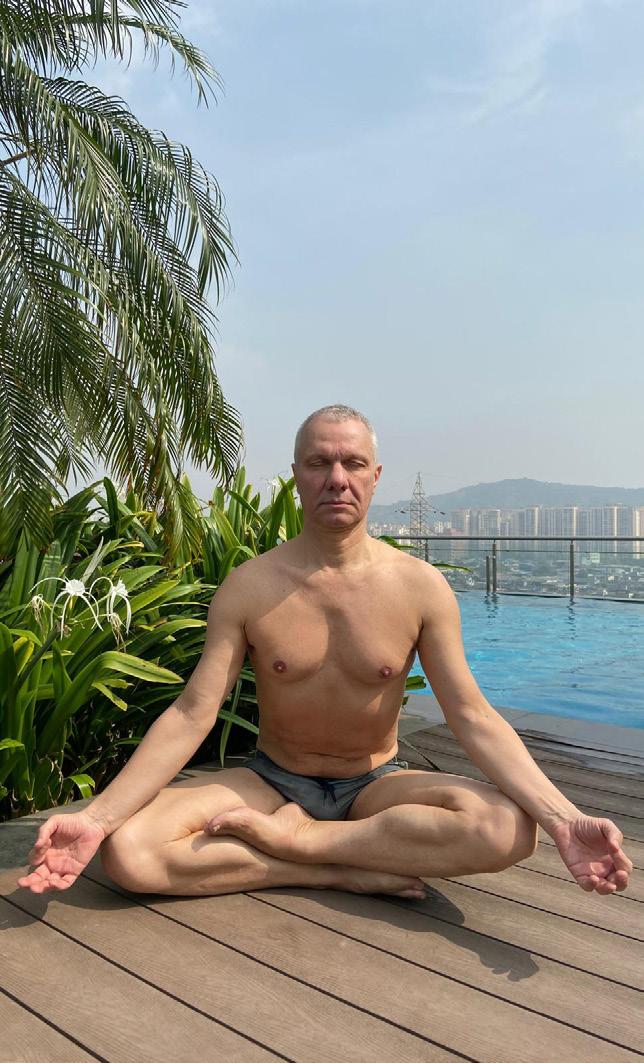
Both Trapp and Pires not only practice spirituality and meditation for their own well-being but also inspire others around them. Pires mentions mentoring colleagues and sharing his practices subtly. "I never try to interfere. You must get to this place by yourself. It's a completely wrong attitude to do it because you think it is the right thing to do," he says.
Similarly, Trapp finds that his yoga practice enhances his ability to connect deeply with the nuances of wine, creating a more holistic approach to his work. This connection between the internal mindfulness of yoga and the external sensory experience of wine tasting creates a unique synergy that benefits both his professional and personal life.
The stories of Myles Trapp and João Pires highlight a growing trend in the wine industry towards a more holistic approach to the sommelier profession. This approach recognises that excellence in wine appreciation is not solely about technical knowledge and sensory skills, but also about maintaining a healthy and balanced lifestyle.
“Rising at four in the morning, the environment was serene and contemplative, allowing me to delve deeply into my practice.”
– João Pires MS
By integrating spirituality and meditation into their daily routines, Trapp and Pires demonstrate that the path to becoming a great sommelier involves nurturing both the mind and the body. This holistic approach not only enhances their professional performance but also promotes long-term well-being and personal fulfillment.
For aspiring sommeliers and those already in the profession, the examples set by Trapp and Pires offer valuable lessons. Embracing practices such as yoga, meditation, and mindfulness can provide the tools needed to navigate the pressures and demands of the wine industry. These practices encourage a deeper connection with oneself and with the wines being tasted, fostering a more profound and rewarding experience. As the wine industry continues to evolve, the integration of spirituality and meditation into the sommelier profession may become increasingly recognised as essential to achieving true mastery and maintaining a healthy, balanced life.
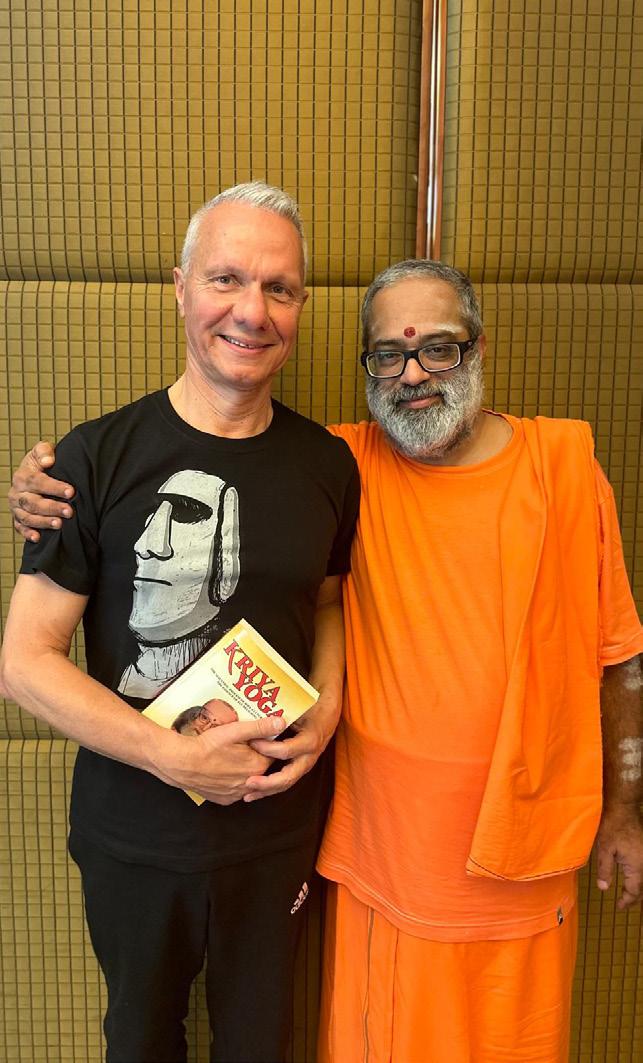
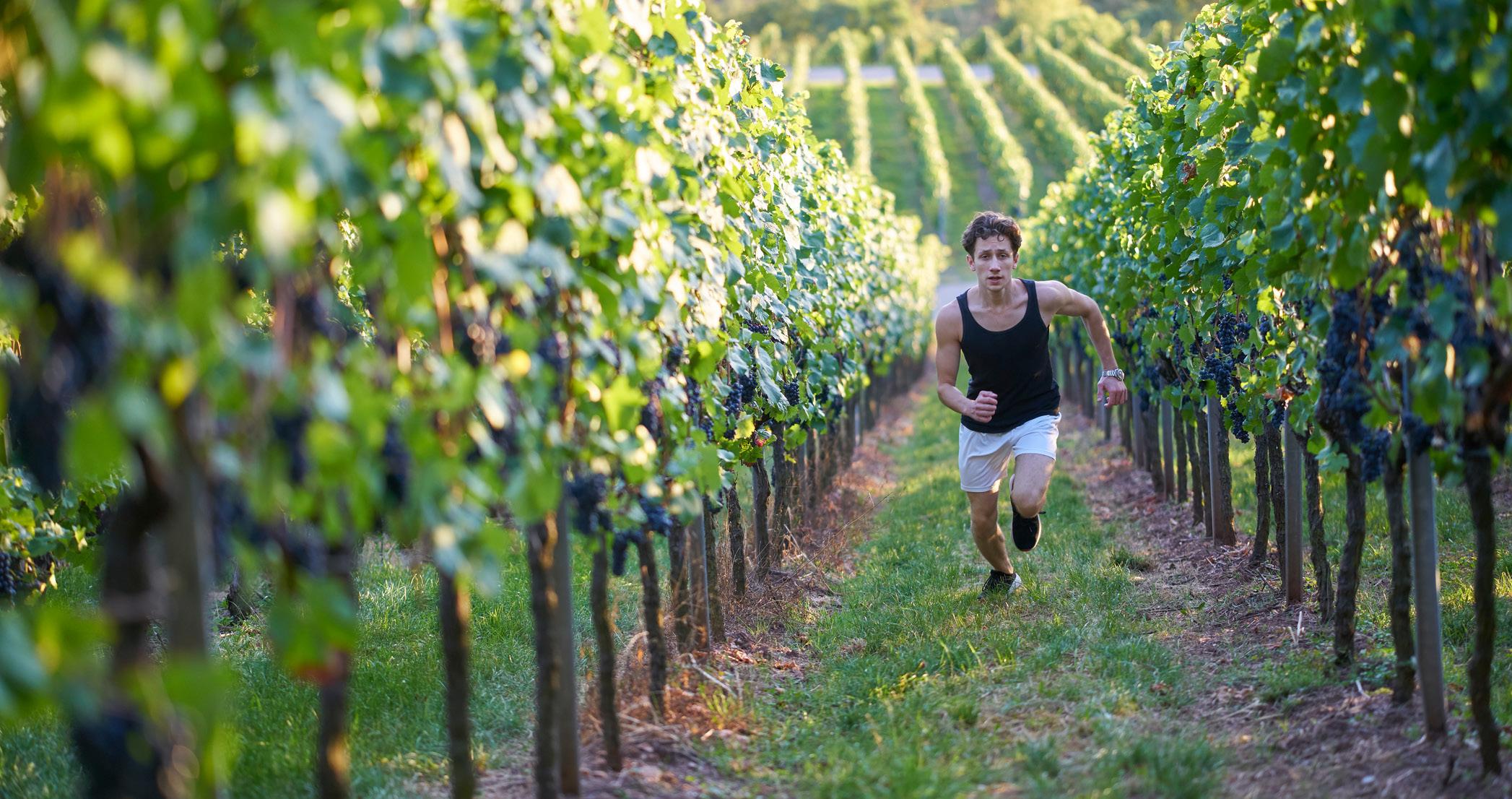
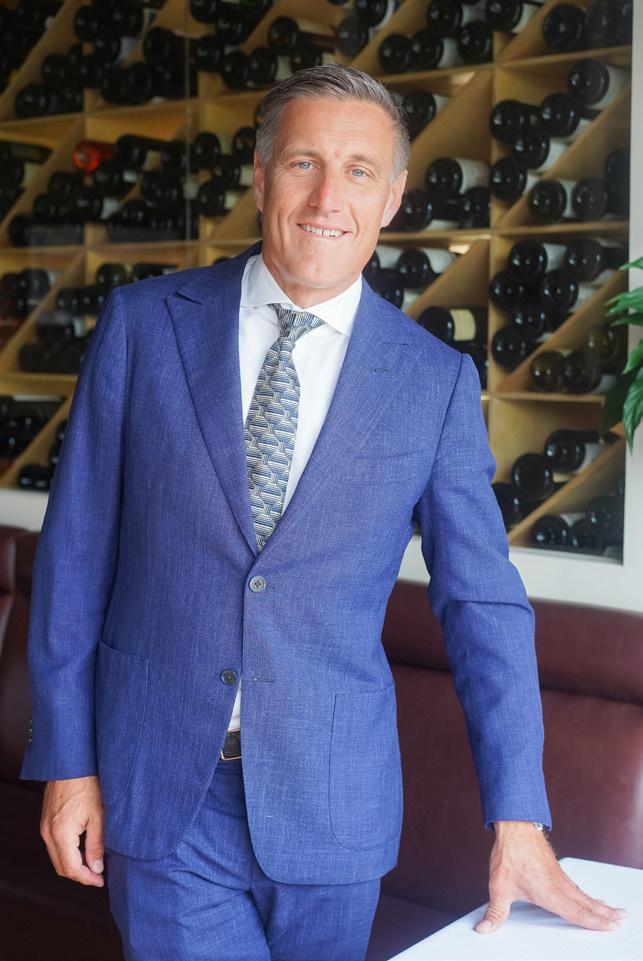
Bobby Stuckey MS began his distinguished hospitality career in Arizona, working his way up from the bottom to eventually establishing himself as a leader in the hospitality industry. He took his introductory sommelier course with the Court of Master Sommeliers in 1994. In 1995, he joined The Little Nell in Aspen as a sommelier, contributing to its numerous accolades. In 2000, Stuckey moved to The French Laundry, earning significant awards and recognition. Inspired by the food, drink and culture of Italy, he and chef Lachlan Mackinnon-Patterson opened Frasca Food and Wine in Boulder in 2004, followed by the launch of Scarpetta Wines and Pizzeria Locale. Stuckey's ventures expanded with Tavernetta in Denver in 2017 and Sunday Vinyl in 2019, consistently emphasising exceptional hospitality and service. His achievements include the prestigious Master Sommelier Diploma and multiple James Beard Foundation awards. He continues to live and work in Colorado, where he maintains a healthy lifestyle as an avid runner and cyclist.
Gustavo Devesas didn’t grow up in the wine world, despite being raised in Porto. In 2000 Devesas’ stepfather came to live in Porto with his mother. His stepfather had little interest in things like football, politics, or religion, but he did love wine. In September 2000, the family opened the Port Wine Bar in Porto. Devesas would spend his days in classes in university, and evenings working at the bar, which had more than 200 Ports by the glass. The bar started with the classic producers, but eventually he started taking weekend trips to the Douro Valley, with his stepfather, meeting with small producers. According to Devesas knocking on the doors of small producers was like rediscovering the region, as many of them were hidden gems with no export at all. They didn’t even deliver to Porto.” In 2007 he was asked to join the Port Wine Brotherhood, and subsequently joined Symington Family Estates in 2008. Gustavo currently works as Symington’s Senior Regional Manager Northern Europe.
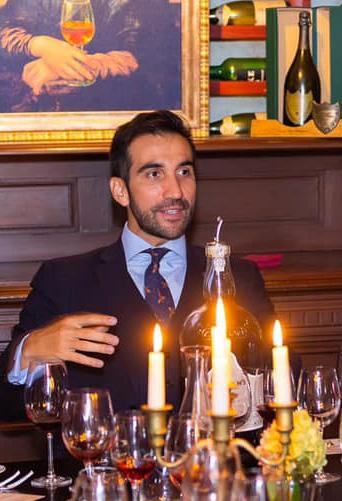 Bobby Stuckey MS
Gustavo Devesas
Bobby Stuckey MS
Gustavo Devesas
In the high-paced world of wine and sommellerie, a world with indulgent temptations, maintaining a healthy lifestyle can be a challenge. For professionals like Bobby Stuckey MS and Gustavo Devesas, balancing work and wellness is not just a necessity but a way of life. Their stories highlight the importance of discipline, moderation, and physical activity in achieving long-term success and personal well-being in the wine industry.
Bobby Stuckey's path to becoming one of America’s best-known Master Sommeliers, and a celebrated restaurateur is as unique as it is inspiring. "I was a dyslexic, ADHD punk rock kid who managed to fail and got kicked out of a Jesuit school," Stuckey recalls. Despite these challenges, he found his calling in the restaurant industry, working his way up from bussing tables to owning award-winning establishments.
Of his introduction to sommellerie Stuckey says "I saw an envelope on the desk of the office, and it was a promotion for the Court of Master Sommeliers. At the time, I loved wine but didn’t understand how to get from point A to point


B," he explains. His dedication and curiosity led him to take the introductory course in San Francisco in 1994, setting him on a path to becoming a Master Sommelier, and eventually his current role as co-owner of a successful restaurant group.
Beyond his professional achievements, Stuckey is a committed runner and cyclist, activities that are integral to his lifestyle. "It’s how I tick," he says. "I run or ride whatever I have time for. As someone that doesn’t take
“I run or ride whatever I have time for. As someone that doesn’t take medicine, I use them as a way to calm and focus me.”
– Bobby Stuckey MS
medicine, I use them as a way to calm and focus me."
Stuckey's dedication to fitness helps him maintain balance and manage his metabolism. "I have a really slow metabolism, so I need to. That's why I wake up in the morning and do a 15-mile run in the mountains with an apple and an espresso," he shares. His commitment to exercise also keeps him focused and disciplined, particularly in avoiding the pitfalls of overconsumption of alcohol, a common risk in the hospitality industry. "I never drink after a shift. Since 1999, I made the decision not to go out for a drink after work."
“Regardless of whether I am an athlete or not, I’ve always consumed alcohol in moderation because, no pun intended, I’m in the business for the long run.”
– Gustavo Devesas
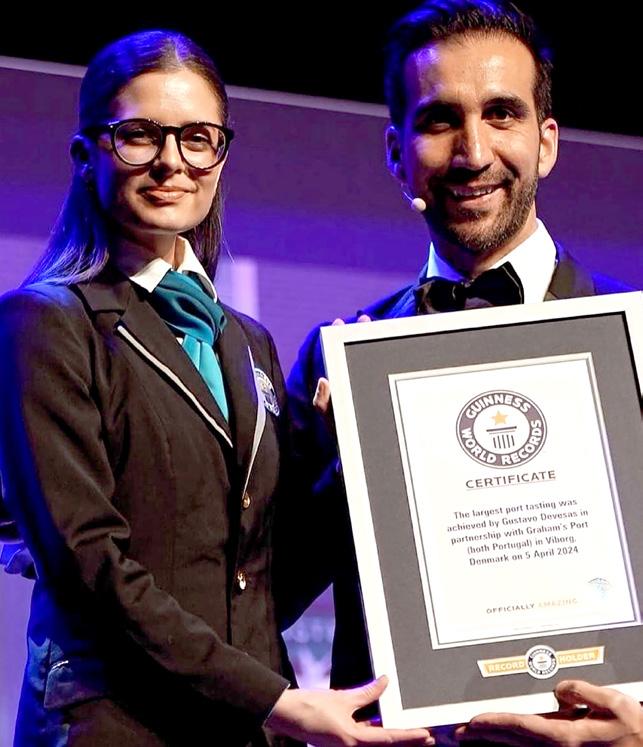
Stuckey's approach to health extends to his staff, whom he encourages to stay active and mindful of their well-being. "I try to encourage runners and cyclists on staff, but I don’t insist on it. I let them know how to protect themselves from the pitfalls of the industry," he advises.
Despite a life in wine Devesas has made a commitment to fitness, which is evident by his participation in Ironman competitions and marathons. "I’ve completed a half Ironman competition and recently my first full marathon," he says. Balancing his demanding career with athletics requires meticulous planning and discipline. "I hired a coach. My coach said he doesn't have a customer like me because I work with alcoholic beverages and travel more than 130 days a year."
Devesas emphasises the importance of discipline and careful planning in maintaining his fitness routine. "Each week I set up a programme with my coach based on my schedule and adapt things. If I have a 6:00 AM flight, I still go for a run at 3:00 or 4:00 AM," he explains. This discipline extends to his alcohol consumption, which he keeps moderate to ensure long-term health and professional success. "Regardless of whether I am an

athlete or not, I’ve always consumed alcohol in moderation because, no pun intended, ‘I’m in the business for the long run.'"
Devesas also highlights the importance of mental fortitude, both in his professional and athletic endeavors. "Everything is about discipline. Certain things must be done today for gratification later. This attitude helps me in both my professional and personal life."
Both Stuckey and Devesas have inspired others in the wine industry to adopt healthier lifestyles. Devesas notes, "I’ve inspired a lot of wine trade people, including sommeliers. They ask me for advice, which I am happy to provide." Stuckey, too, encourages his staff to stay active and mindful of their well-being.
The stories of Bobby Stuckey and Gustavo Devesas illustrate that a balanced lifestyle, combining passion for wine with a commitment to fitness and discipline, is crucial for long-term success and health in the wine industry. Their experiences serve as a testament to the benefits of integrating wellness into the demanding world of wine.


Sören Polonius
Sommelier Sören Polonius is well-known throughout the world of sommellerie. The two-time Swedish sommelier champion (2006, 2008), switched from competitor to coach following the 2010 ASI Best Sommelier of the World contest in Chile. Since then, he has helped Sweden become a force at Nordic, European and World sommelier contests. Currently he is Codirector of the ASI Exams & Education Committee and the wine director of the Adam/Albin restaurant group in Stockholm. On his days off Polonius can often be found looking through the lens of a camera.
This love of photography is not new. Long before there were cameras in phones, or even digital cameras, he was processing film in a darkroom shared with a friend. We asked Polonius about his love of photography.
ASI: What inspires you about photography?
Sören Polonius (SP): It's like freezing time and keeping that exact moment that will never happen again. Something that is a very important to me about it, is how takes my mind off what I do every day. I also love the creative process of it, which is not dissimilar to what I do every day. For a sommelier, the wine list is like a canvas where the creativity reflects the mindset of the sommelier.
ASI: As a sommelier, do find yourself inspired to take photos of vineyards, wineries, food or do you prefer to use photography for non-work-related activities?
SP: I think that details that I don't see in my everyday life often are the details that stick in my mind. I think that pretty much everyone with a camera device has the same idea. But I also love the challenge of finding the interesting details, the soul if you like, in the everyday details. I try not to lock myself into a dogmatic corner but keep an open mind for everything. But I
love to walk around in the vineyards all by myself searching for the next pic.
ASI: When you take photos of wineries, vineyards, food, or drink, for example, is there anything specific you are trying to capture?
SP: I try to look at the details that are outside of the usual perspective. Not only angles, but perhaps also a different time of the day, weather conditions. Sure, sunsets and sunrises are beautiful, but so are rainy and foggy days. It is something about the symmetry of a vineyard that I love, so I have a lot of pics from vineyards from all over the world.
I also think about different times of day. Have you ever sat down in the middle of the night in a vineyard, listening to the sounds, seeing how
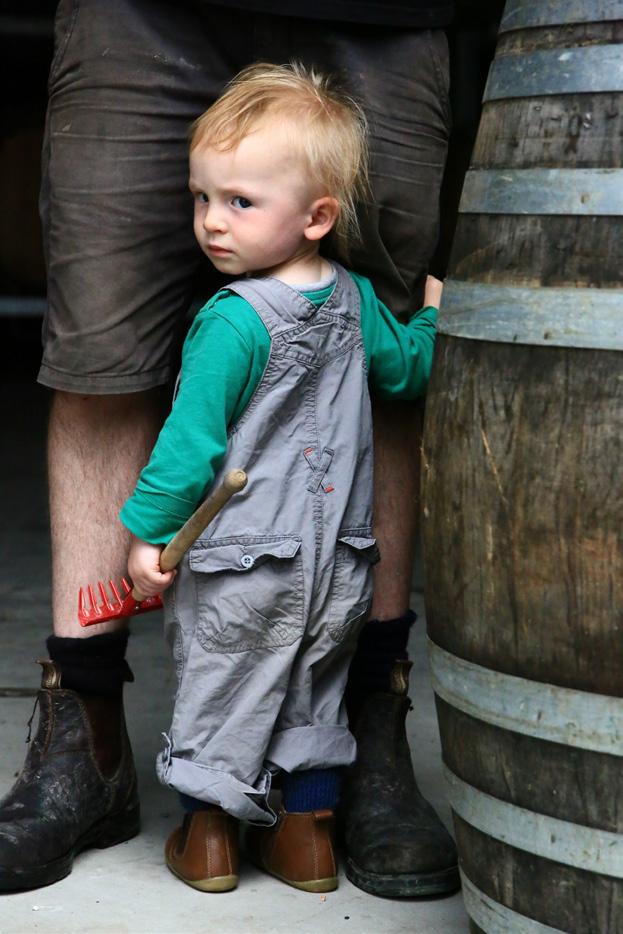
it looks in a darker light setting? Of course, Meursault is a pretty safe adventure. Perhaps in South Africa, one must bear wildlife in mind. I have yet to see a Leopard in a Meursault vineyard. If in Mosel you need to pay attention to where you put your feet, if you don't want to roll and tumble all the way down to the bottom of the vineyard.
ASI: In your opinion, what makes for a great photograph?
SP: I’ve taken a million bad photos... To be honest, I don't know the answer to that question. It takes time to master the art of photography. I am still very far from being a good photographer. For every good picture I take, I have at least 1000 bad ones, but I don't mind since they have a value as well. My pictures aren't always sharp, and I tend to break
a lot of classical rules when I take my photos, but they tell me a story. What I think makes a great photographer is to see the picture before the photo is taken. The photographers I admire seem like they see things that we humans do not. That's a superpower.
ASI: Do you have any recommendations for equipment for those sommeliers starting out on their photography journey?
SP: Whatever you do, don't run off buying expensive camera equipment. These days mobile cameras are very good. A lot of times, a great photo is not about sharp pictures, it just has to tell a story, or be food for thought. Remember, "beauty lies in the eyes of the beholder".
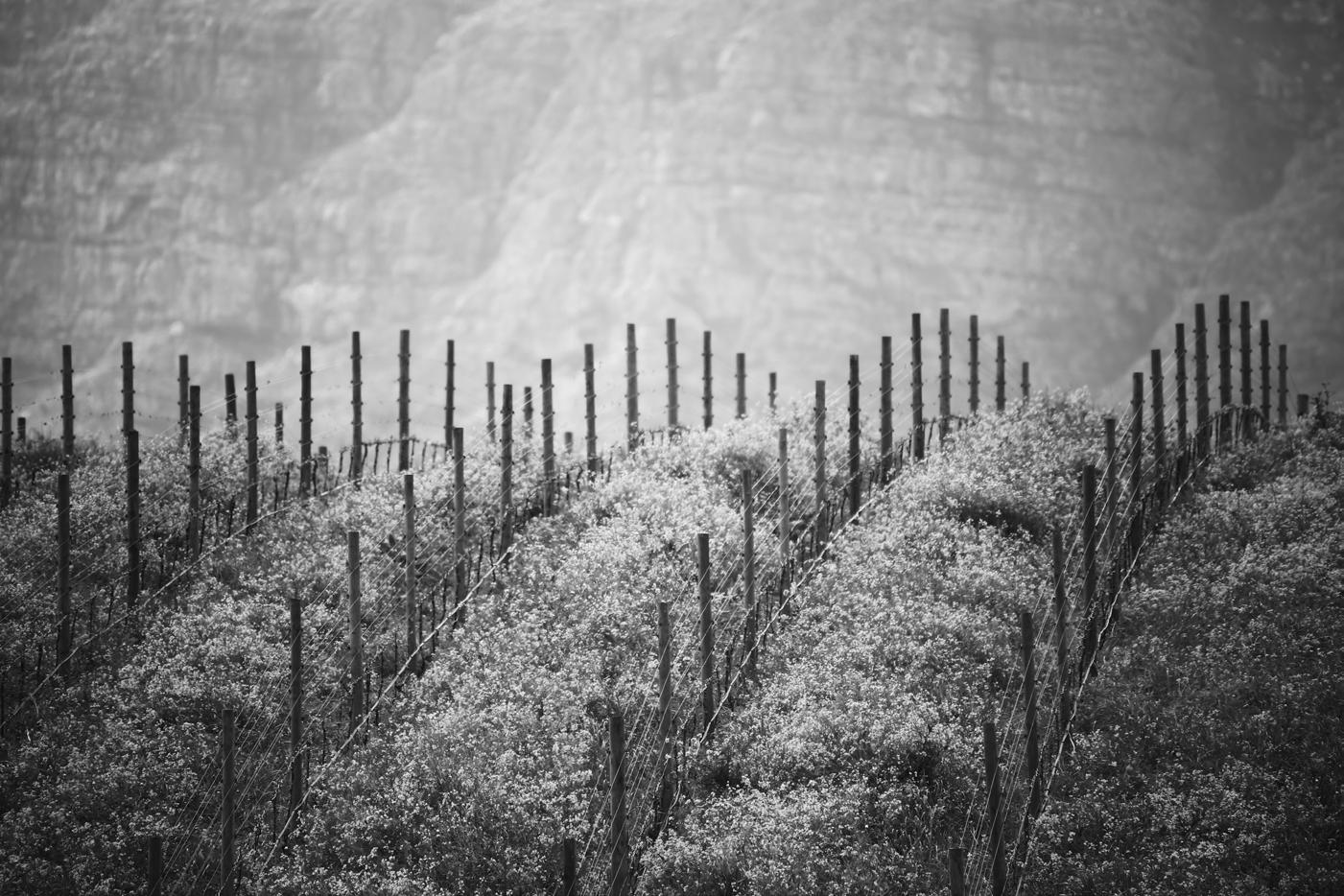
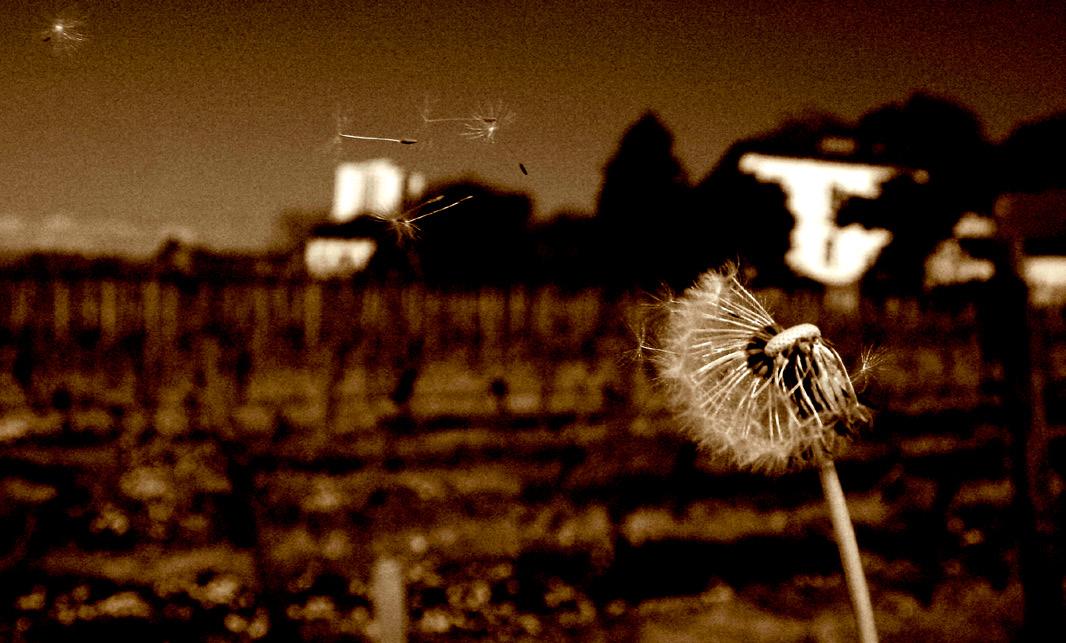
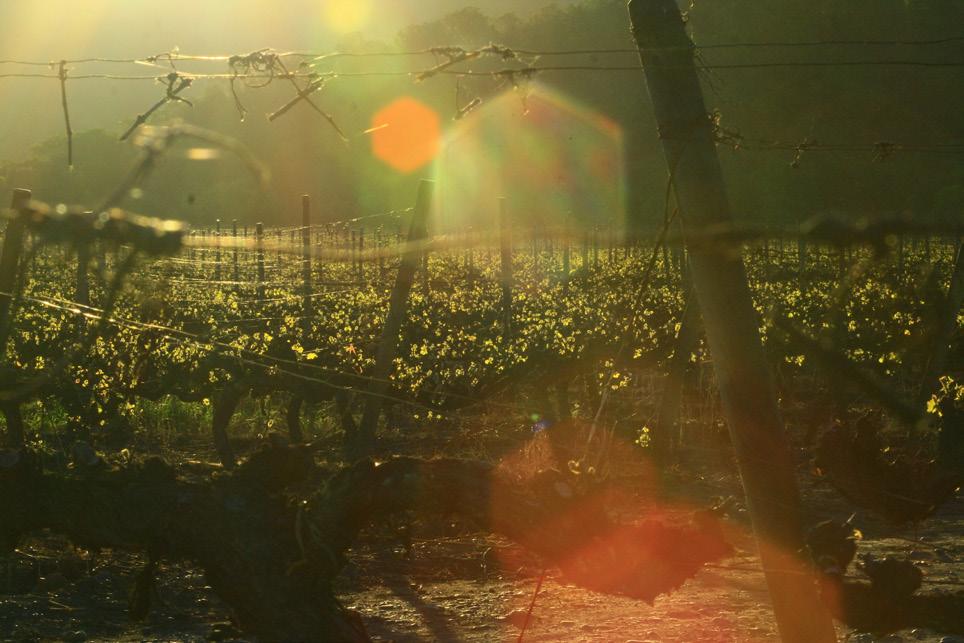
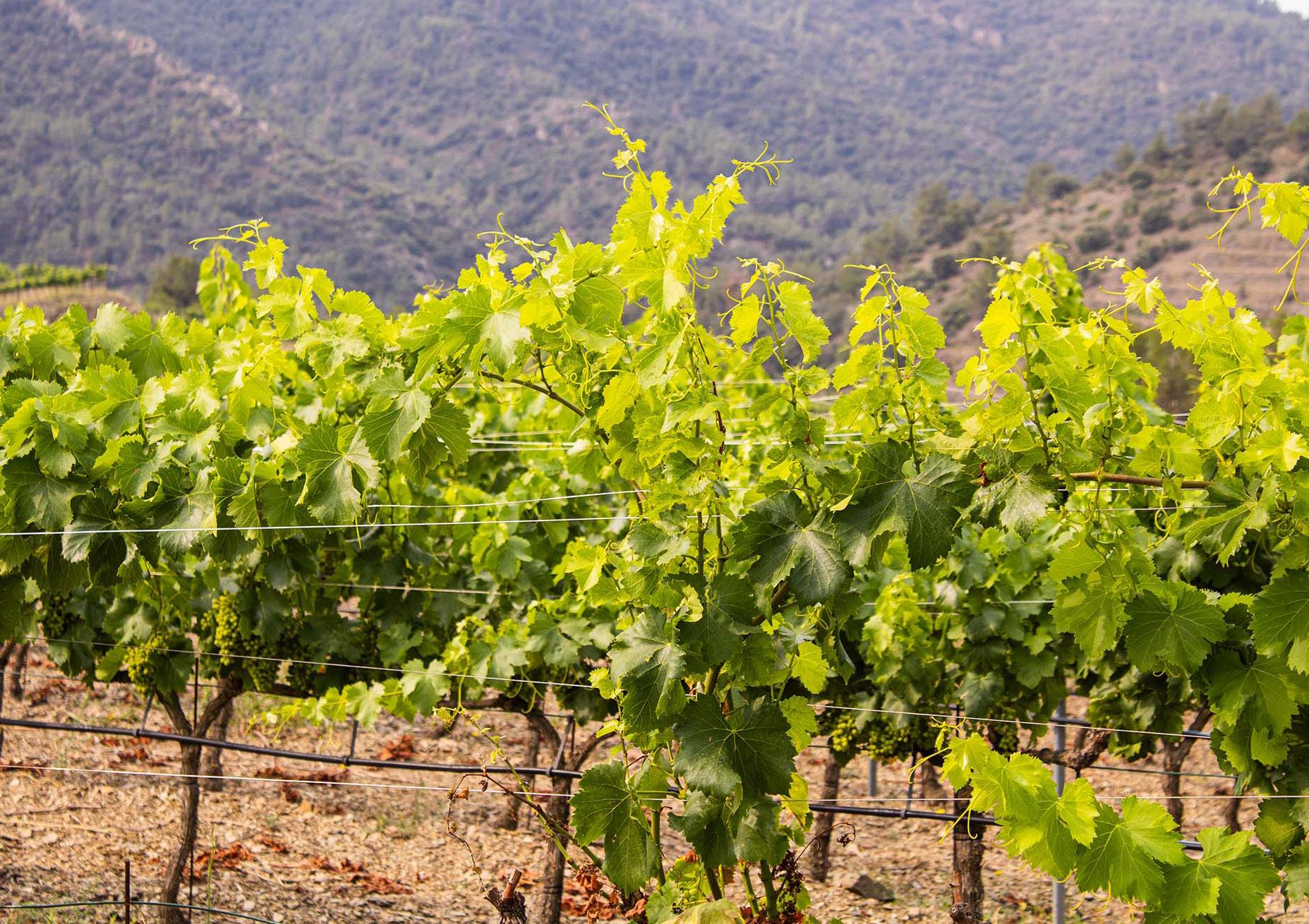
Venturing from the world of sommellerie into the handson craft of winemaking, many sommeliers are embracing the challenge of producing the very things they once served. We asked five leading sommeliers about their transition to winemaking. How does their sommelier background shape what, how and where they make wine? Their journeys from restaurant cellar to winery cellar often illustrating the complexities and rewards of turning a sommelier trained palate into a creator's touch.
 Doug Frost
Doug Frost
“There is no way to understand wine by being only a spectator, or at least that’s what I told myself.”
– Doug Frost
Doug Frost, MW, MS Kansas City based Doug Frost is one the few people to own both the Master Sommelier and Master of Wine designation, and was the original president of BUSA (Best USA Sommelier Association).
Winery: Echolands Winery, Walla Walla, Washington State, USA
Varietals Planted: We have vineyards planted in Walla Walla (Washington State) as well as in the southern (Oregon) side of the valley to Cabernet Sauvignon, Cabernet Franc, Merlot, Sauvignon Blanc, Semillon, Petit Verdot, Grenache, Cinsault, Grenache Blanc and Assyrtiko.
Most popular wine produced: Rubrum, a blend of Cabernet Sauvignon, Merlot, Cabernet Franc, and Petit Verdot.
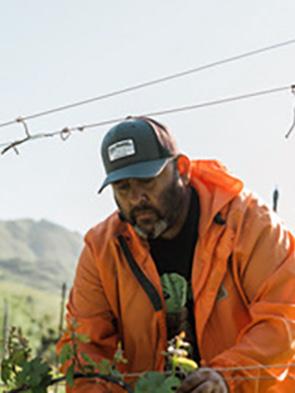
Rajat Parr
Born in India, trained in the United Kingdom, and now based in California. Rajat Parr’s career is a memorising blend of restaurant ownership, sommellerie, writing and winemaking.
Winery: Phelan Farm, Cambria, Central Coast, California, USA
Varietals Planted: Pinot Noir, Chardonnay, Savagnin, Trousseau, Poulsard, Mondeuse etc.
Most popular wine produced: Autrement, a blend of Gamay, Mondeuse, and Pinot Noir.
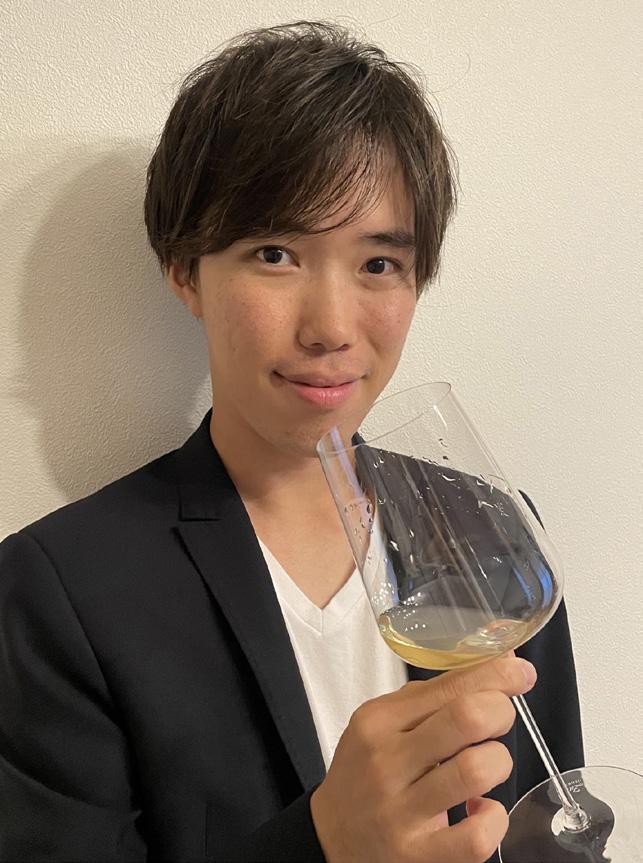
Toru Takamatsu MS
Toru Takamatsu has accomplished a lot in a very short amount of time. Born in Australia to Japanese parents Takamatsu came to wine early in his career. He graduated his Master Sommelier certification at only 24, becoming one of the youngest ever to attain the title.
Winery: Domaine Takahiko, Yoichi, Hokkaido, Japan
Varietals Planted: Pinot Noir
Most popular wine produced: Nana-Tsu-Mori Pinot Noir

Franck Massard
Former Best Sommelier of the United Kingdom (1996) and student of Gérard Basset, Massard is now the owner of Epicure Wines, a distribution business, and producer of his own wines.
Winery: Franck Massard, Priorat, Spain
Varietals Planted: Carignan, Grenache Blanc, Grenache, Syrah
Most popular wine produced: Humilitat, a blend of Grenache and Carignan
“Being a sommelier really helped me in knowing what was the final wines that I wanted to reach.”
– Franck Massard
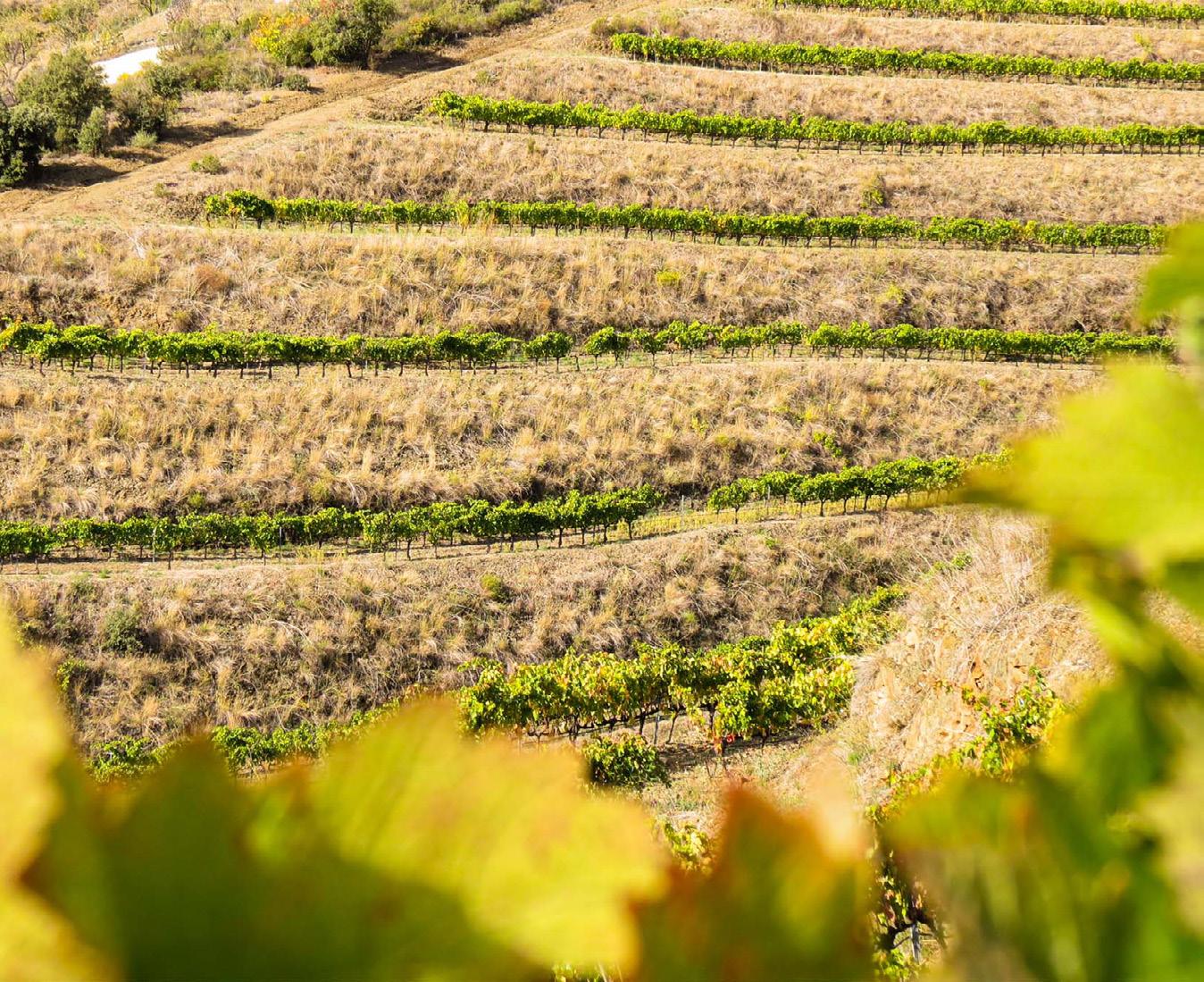 Rajat Parr
Toru Takamatsu MS
Franck Massard
Rajat Parr
Toru Takamatsu MS
Franck Massard
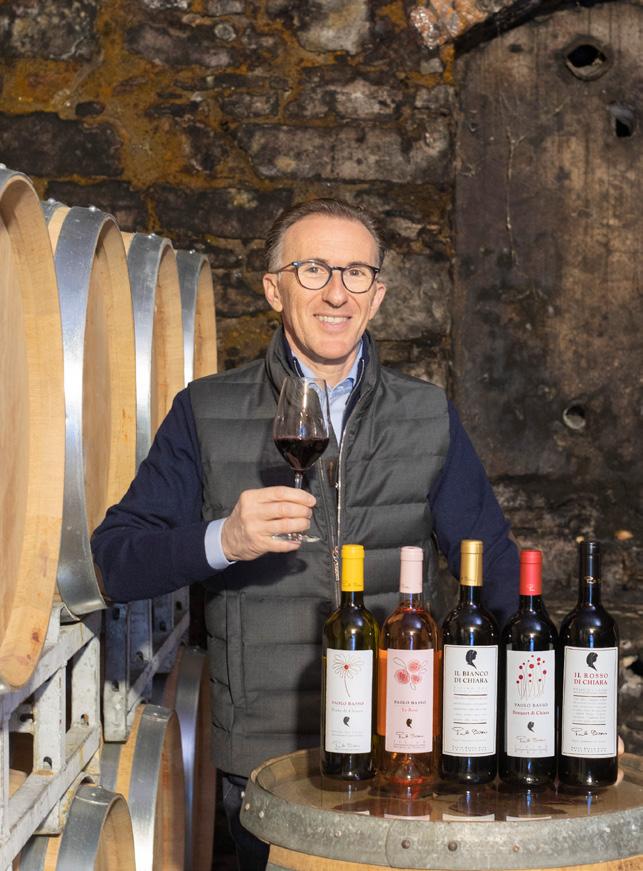
ASI: Why did you want to transition from being a sommelier to a winemaker?
Doug Frost (DF): I haven’t fully. I still work the floor of a restaurant in Kansas City about one night a month and I love still being able to interact with diners in a restaurant setting. I love showing people wines from all corners of the world, and in the many styles that are available to curious consumers. But seven years ago, when I was given the opportunity to buy some Walla Walla land and to make wine, I decided this was my one and only chance. There is no way to understand wine by being only a spectator, or at least that's what I told myself.
Rajat Parr (RP): After working for 18 years on the floor of a restaurant I wanted to be more in touch with nature.
Toru Takamastsu (TT): I am interested in exploring become a Master of Wine and I would like to open a winery at some point in the future.
Franck Massard (FM): Sommelier to winemaker was some kind of dream that became reality when I had a chance to acquire a small vineyard in the Priorat.
I've always felt that I need to practice to better understand a
Paolo Basso, ASI Best Sommelier of the World 2013 Italian-born, Swiss-based Paolo Basso reached the heights of sommellerie in 2013, when he won the title of ASI Best Sommelier of the World in Tokyo, Japan. The accomplishment came after many years of intensive study and multiple times competing for the title. Basso came second in the contest on three occasions; 2000, 2007, and 2010.
Winery/Brand: Paolo Basso, Ligornetto-Ticino, Switzerland
Varietals planted: Merlot, Cabernet Sauvignon, Cabernet Franc, Chardonnay, Sauvignon
Most popular wine produced: Rosso di Chiara, Rosso del Ticino DOC, a blend of Merlot (80 per cent), Cabernet Sauvignon and Cabernet Franc
“Rather than looking for technical perfection, I try to have my wines perform at their best in the food and wine dynamic.”
– Paolo Basso
subject. As a sommelier, we are uncorking and tasting many wines from the world which is crucial to fine tune our palate. But planting, pruning, tasting grapes and wines in their raw states prior to ageing in barrels and following the wines as they mature gives another understanding of wine that I find fascinating.
Paolo Basso (PB): It wasn’t my intention, but rather an opportunity that came up due to the fact that I live in a wine-growing village in Ticino, in the south of Switzerland, on the border with Italy. It is a wine producing region where there is a lot of dynamism and enthusiasm,
and a region which has experienced an explosive rise in quality over the last 30 years. For me, it was another important step towards the origin of my passion for wine and today I am happy that it has become my main activity.
ASI: What elements, if any, of being a sommelier have helped you with winemaking?
DF: Gaining familiarity with so many diverse wines and styles of wines has given me a sense of direction when we approach certain varieties and vineyards. We were offered grapes from a vineyard that typically over ripens its Grenache; so I decided to pick it early and try to make something in homage of some of the delicious Grenaches producers in Australia's McLaren Vale. We were inspired too by Cinsault based wines of Southern France and we hope experience with those wines has given us some insight into that grape.
RP: Being a sommelier helped me build my palate and plays an integral part during vinification.
TT: Definitely tasting skills aids me in making wine, but so does my theoretical knowledge.
FM: Being a sommelier really helped me in knowing what was the final wines that I wanted to reach. Like in a restaurant it is a
Paolo Bassoteam effort, creating a team that understands our goals and how to achieve them.
Since 2018 I have paired with David Forer MW. He is a great friend, and we share the same views on styles of wine.
PB: Twenty-five years of sommellerie at the highest level have clearly affected the style I look for in my wines. Having visited many producers in almost every wine region of the world has provided me with a clear idea of how to achieve quality results. Additionally, having studied viticulture and oenology in preparation for sommelier competitions has been fundamental in helping me manage production.
My approach to wine has always been linked to gastronomy. I don’t produce wine only intended to perform well in technical tastings. This attitude has proved important. I want my wines to perform their best while accompanying food. In addition, having direct consumer relationships for so many years and consequently understanding consumers have helped me a lot, even if I only worked as a sommelier in the fine dining sector, in touch with a very small part of the population that has knowledge of wine and an educated, sensitive
palate. Today, however, the challenge is to explain in simple words and make the whole complexity of wine understood by the younger generations who may not have had a wine appreciationoriented culture in their family.
ASI: How would you describe your winemaking style?
DF: I'm motivated to show that Walla Walla Valley wines can be better balanced, at least to my palate, with higher acidity, lower alcohols and lower pHs. Indeed, we are using less new French oak and milder extraction practices than most of our neighbors because I like to drink wines that express nuance and elegance. I don't know if we are being successful at that; that's for others to decide. But I seek a sense of balance that emphasises drinkability and deliciousness over power and intensity.
RP: Our style is predicated by our practices in the vineyard and in the winery, which includes regenerative farming and low intervention winemaking.
TT: I want to let the grapes do the work, so I take a hands-off, clean, natural approach to winemaking.
FM: I would say, always keep the identity of the region. Being so respectful of the vineyard and its
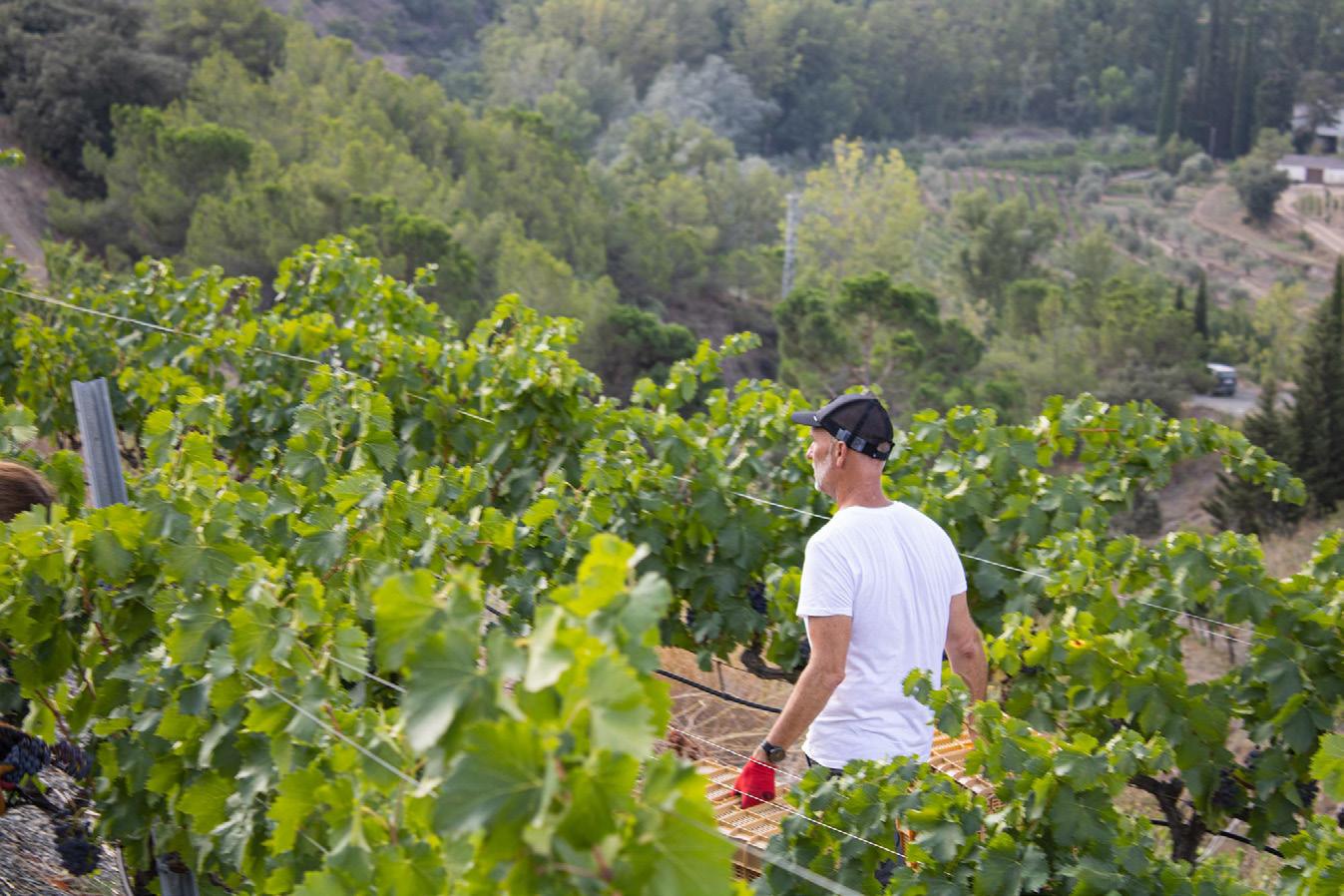
environment so that it can echo its closest territory. For instance, in Poboleda where our vineyard is located the wines demonstrate the power of the Mediterranean coast, but also a savoury tone and vibrancy that keeps the wine with verticality.
As a sommelier, and wine lover, the challenge is not to create the most powerful wine. It is to tame the natural power of our region and craft a fine delicate wine that will age and develop over years.
PB: In making my wines, I have mainly focused on the quality standards that I have always had in my job as a sommelier: a constant search for quality and the best results. Then I emulated the style of wines that I have always enjoyed, which are elegant, refined, and harmonious. My background as a sommelier is evidenced in my wines as I try to produce wines with a taste profile oriented towards great palate persistence. For me, this is a fundamental element to making a wine that pairs well with food. Rather than looking for technical perfection, I try to have my wines perform at their best in the food and wine dynamic. They are wines that I believe emphasise the customer's emotional gastronomic experience response in the restaurant.
I also do not want to be inspired by any producer, because I think that the primary objective as a winemaker is to express and highlight the qualities of the terroir. I focus on terroir as the inspiration, rather than a style of wine, which is an approach I find in the qualitative standards of many producers. How many times have I seen that a crucial decision made by a producer has influenced the quality of his wine? And how many times have we all seen that when a winery changes ownership, the style and quality of the wines changes in a major way? As such, I am very sensitive to limiting the contribution of the human factor in wine production.
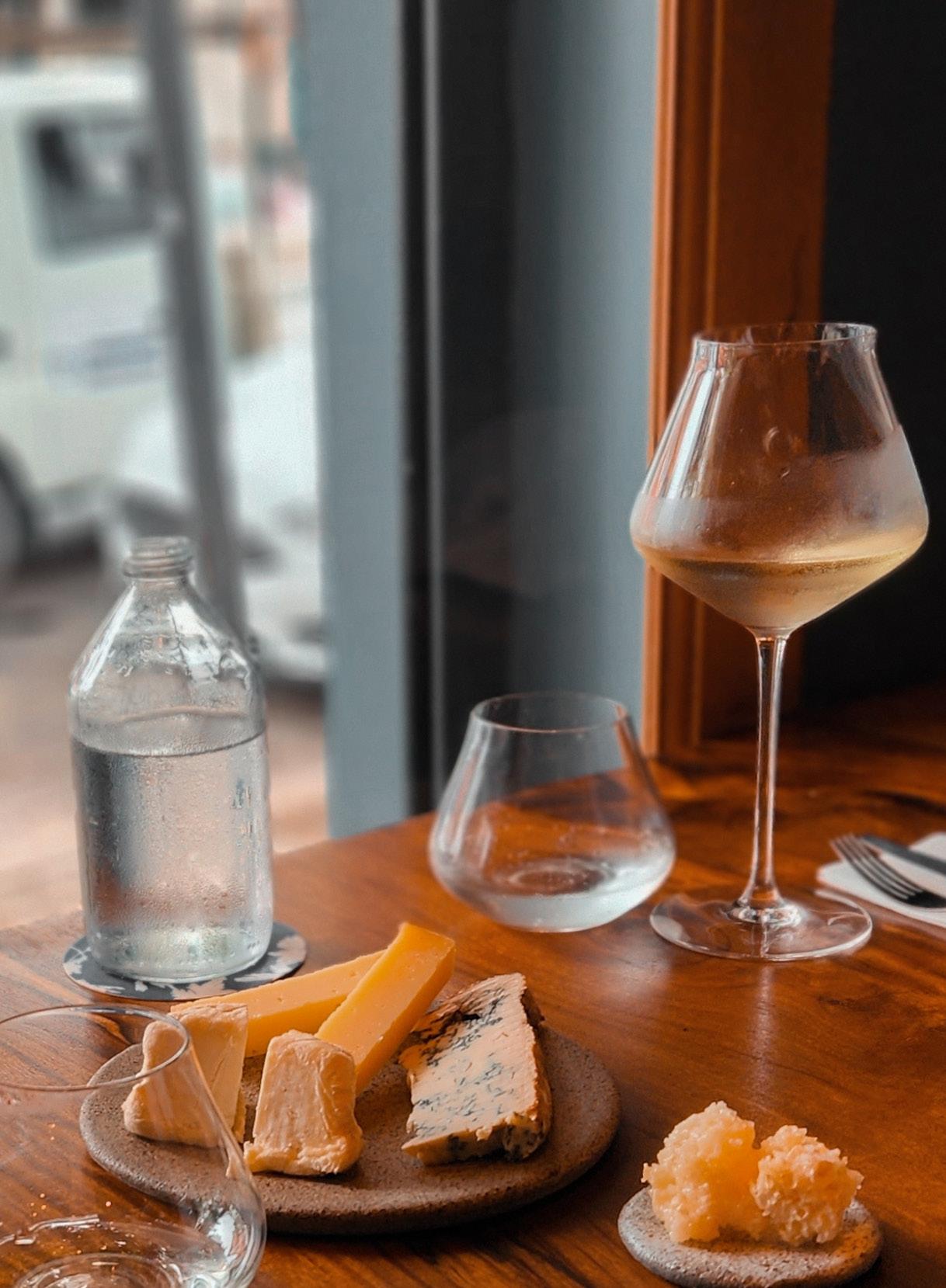
The life of a sommelier can be a whirlwind of fast-paced shifts, tastings, and studying. Days off are precious. On those rare days, often Sunday, Mondays, and Tuesdays, when the rest of the world seems to be hibernating at home, it’s a sommelier’s chance to rekindle friendships and their opportunity to discover their own city. We asked three sommeliers living in vibrant cities around the world to share their favourite wine bars, and restaurants to hang out with friends on a day off.

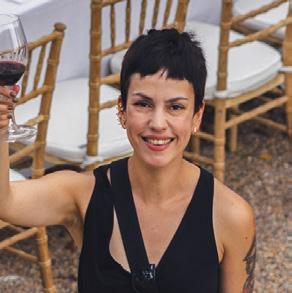
Natalia Torres moved to Buenos Aires from Córdoba nine years ago. Even though it has been close to a decade Torres says ‘I sometimes still feel the giddiness of a tourist finding new surprises.’ It was here that her passion for wine and gastronomy truly ignited, “leading me to become a sommelier to complement my job as a journalist.” Through her work writing about food and wine, every day she explores the city’s still thriving restaurants scene, even despite the country’s economic challenges.
Anchoíta Cava, Buenos Aires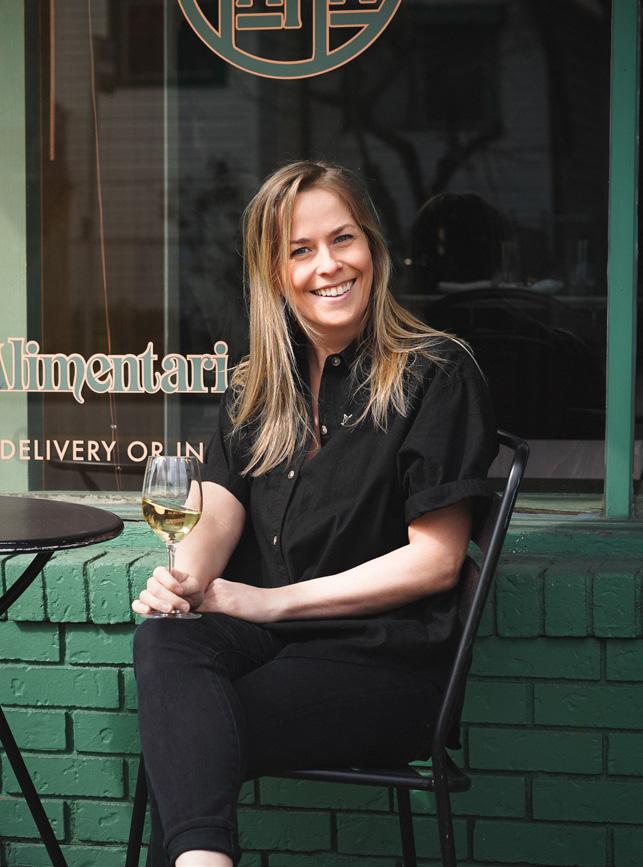
Kristi Linneboe was recently awarded the title of Vancouver’s Sommelier of Year by Vancouver Magazine. The gracious sommelier who is currently Wine Director for the Banda Volpi group (Savio Volpe, Pepino’s, Caffè La Tana, Elio Volpe) has previously worked at such local hot spots as Maenam, L’Abattoir, Como, and Elisa. Of her days off she says "while I love the hustle and bustle of the restaurant industry, I’m a nature girl at heart. If I’m not pouring you wine, I’m either camping or hiking, or snowboarding. My dream job when I retire from wine is at BC (British Columbia) Parks.” When not hanging with friends on days off, you’ll often find Linneboe cycling on a bike path in Stanley Park. We ask Kristi for her top five places in Vancouver to hang out on a day off.
Miyuki Morimoto, a sommelier at the Conrad Hotel in Tokyo, is one of Asia’s top sommeliers. Born in Kanagawa, Morimoto's passion for wine ignited at 20 after tasting a 1995 Château Ducru-Beaucaillou. She trained in New Zealand and Australia, earned her Advanced Sommelier Certification in 2018, and finished second in the 2020 Best Sommelier of Japan contest— the highest result ever for a female sommelier in Japan. Morimoto is now preparing for the Master Sommelier Diploma and aims to inspire young female sommeliers in Japan.
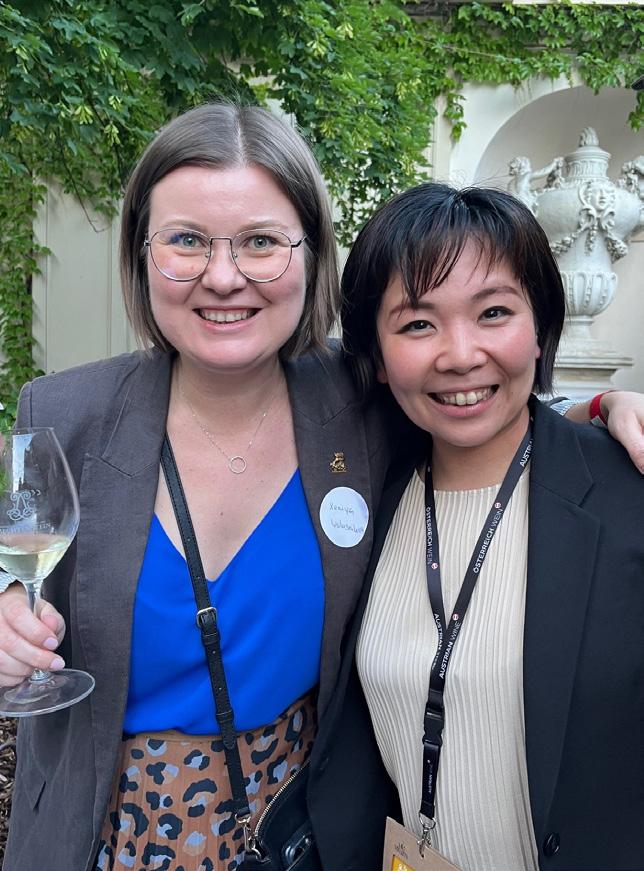
Kristi Linneboe TOP 5 HANGOUT
in Vancouver
Ahn & Chi
1
My pick for lunch. Traditional Vietnamese food that is so fresh and full of flavour! They carry a great selection of BC wines at an accessible price point. I love bringing visiting winemakers from Europe here, so that they can taste their wines with the rich Asian influences that we are so lucky to showcase in the Vancouver food scene.
hangout. Food is ‘fab’, and the Sherry selection is everything.
3
food is so exciting and colourful! An amazing experience for food and wine pairings.
Bar Tartare
The ultimate natural wine bar. It features rotating chefs and cuisines. Small stems, cold reds, and share plates. What else could you possibly need?
4
Maenam
2
Como Tapereria
This is the spot for tapas and Sherry! This is THE industry
Best Thai food. This is where I had my ah-ha wine moment. I tasted an off-dry Riesling with a spicy green curry and the rest is history. The
5
Chambar
The place to go for vibes and BTG pours. This is the OG (original) spot. The Chambar Effect is a real thing! They continue to have a huge list of rotating international wines, and always open for groups, spontaneity, and late-night beers. They always welcome you with open arms!
Kristi Linneboe Miyuki Morimotoin Buenos Aires
1
Lardito
With a vibrant and flavourful cuisine tinged with influences by culinary traditions from around the world, Lardito offers a wine list focusing on avant-garde producers. On spring and summer evenings, their rooftop becomes a space where new, rare or off-the-mainstream wines are served by the glass.
cheeses, homemade charcuterie, and small plates.
3
Picarón
2
Anchoíta Cava
At Anchoíta Cava, renowned Argentine producers and European wines (especially from Italy, Germany, Portugal, and Spain) co-exist both by the bottle and by the glass. The experience is complemented by an impressive and painstaking selection of
For lunch, Picarón offers delicious and hearty meals with a vegetarian option at a friendly price (the Friday burgers are a highlight). On the main menu, the focus shifts to a more refined dining experience, still influenced by Asian and Latin American cuisines. A glass-walled wine cellar dominates the dining room, showcasing the neatly curated wine selection.
in a relaxed and jovial atmosphere. Sometimes open until the early morning hours, it’s a popular spot for sommeliers and culinary professionals to unwind after service.
5
El Preferido
El Preferido revives the spirit of the classic Buenos Aires immigrant influenced cuisine with impeccable quality, adding homemade charcuterie, must-try artisanal ice creams. The wine list features some of the best Argentinian producers and bottles specially made for the restaurant.
1
Suzu
A small and home French-inspired restaurant in Kamakura/Kanagawa that mainly serves delicious vegetables sourced from the Kamakura and Shonan areas, and transformed into delightful dishes. The wines on offer are clean natural wines. The owner will personally select and serve wines that meet your taste.
French Diner Ittoku
A French bistro in Odawara/ Kanagawa. Not only the food, but even the bread served with it is handmade by the chef. He visits local poultry farms and pig farms to further promote the potential of Odawara’s food products. This is
4
Pulpería Soler
Pulpería Soler combines simple dishes and cheese plates with Argentine and international wines
in Tokyo and Kanagawa Prefecture
a restaurant where you can enjoy fine dining cuisine with chopsticks and feel more familiar with French cuisine. Non-alcoholic drinks include many famous local Odawara products, and many of the wines are natural European wines.
2 3
Rikuu
Rikuu is an authentic Japanese washoku restaurant located in Ebisu/Tokyo, home to skilled craftspeople producing high-quality Japanese cuisine, who carefully create each dish with selected ingredients from all over Japan according to the four seasons. They not only provide beautiful wine pairings, but also Sake and Shochu.
Na camo guro
Do you like Duck? If you do, I highly recommend this restaurant located Nakameguro/Tokyo. Here they specialise in duck cuisine. I often ask the sommelier to choose a wine to match with the duck of the day dish.
Series
4 5
Series is a Chinese restaurant that combines traditional Cantonese techniques with the spices of other Asian countries Azabudai/Tokyo. The chef, who trained overseas, is also a certified sommelier, is responsible for pairing their multiingredient small plate dishes. These pairings include wine, but also Shaoxing wine and Chinese tea.

GuildSomm International is a nonprofit membership organization for wine, spirits, and beverage professionals and aficionados. We create and deliver the most accurate, comprehensive, and accessible educational content in support of the global beverage community.

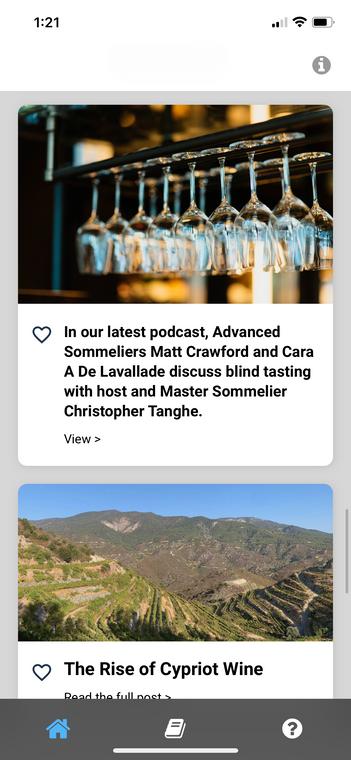




Time off is a much-valued commodity amongst sommeliers. Those days off are often spent at home with family and friends around the dinner table and in the kitchen preparing home cooked meals to be shared with a bottle of wine. We asked three sommeliers to describe their favourite meals at home.
“I’d say the ideal day off for us would be going for a hike on the Sonoma coast and then stopping for fresh seafood and enjoying a crisp Pilsner or a glass of Chablis.”
– Myles Trapp
Farmers’ Markets and Crisp Whites
Myles Trapp, United States, ASI Western USA Correspondent
As far as nights off at home, we've been keeping it simple since we welcomed our first child. On a typical day we pick up fresh vegetables and fish from the local farmers’ market. This past week, for example, I pan-seared rainbow trout in lemon butter. Believe it or not, the baby loved it! Other days we make homemade pizzas, noodle soups, and stir fries. My wife, who is Polish, makes excellent crepes, and sometimes we have Zurek (sour rye soup), mushroom and cabbage croquettes, or pierogies. When chilling at home, we tend to gravitate towards white wines. We have a tradition of drinking Chablis with pacific oysters (I usually do the shucking) on my wife's birthday and sometimes just for a treat. Otherwise, we like to explore grower champagnes we haven't tried before, and we have a major crush on German Riesling. I'd say the ideal day off for us would be going for a hike on the Sonoma coast and then stopping for fresh seafood (like crab sandwiches) and enjoying a crisp Pilsner – we are beer lovers too - or a glass of Chablis.
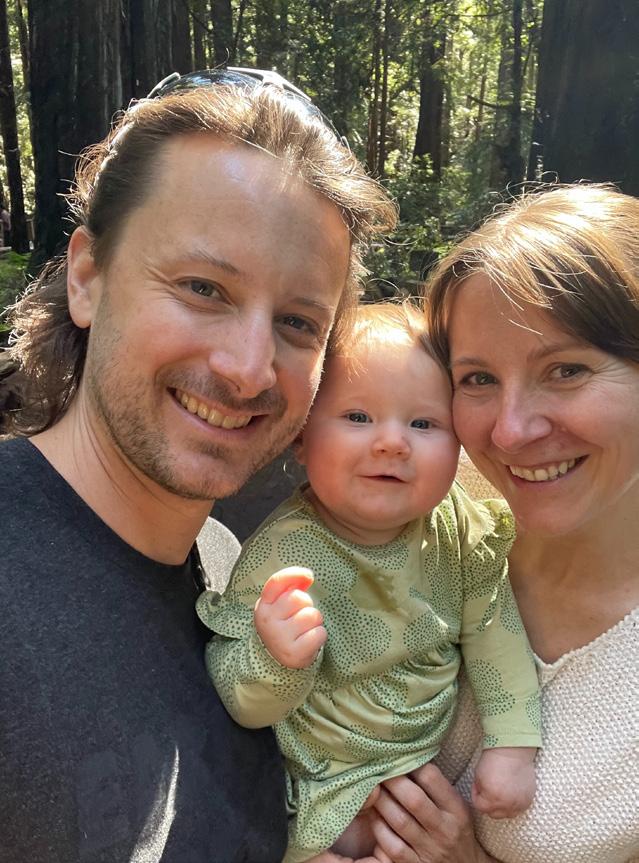
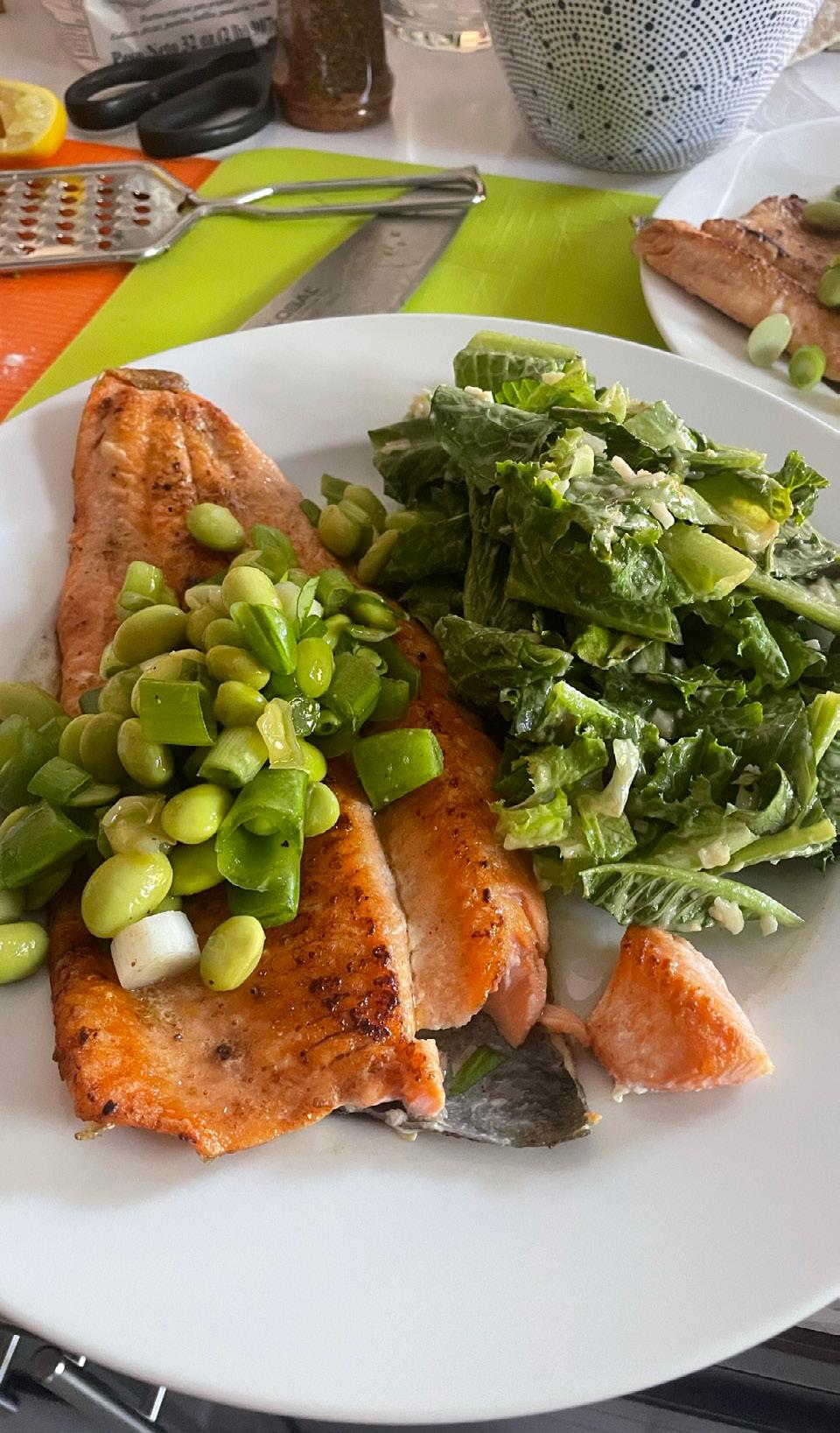 Myles Trapp with family
Myles Trapp with family
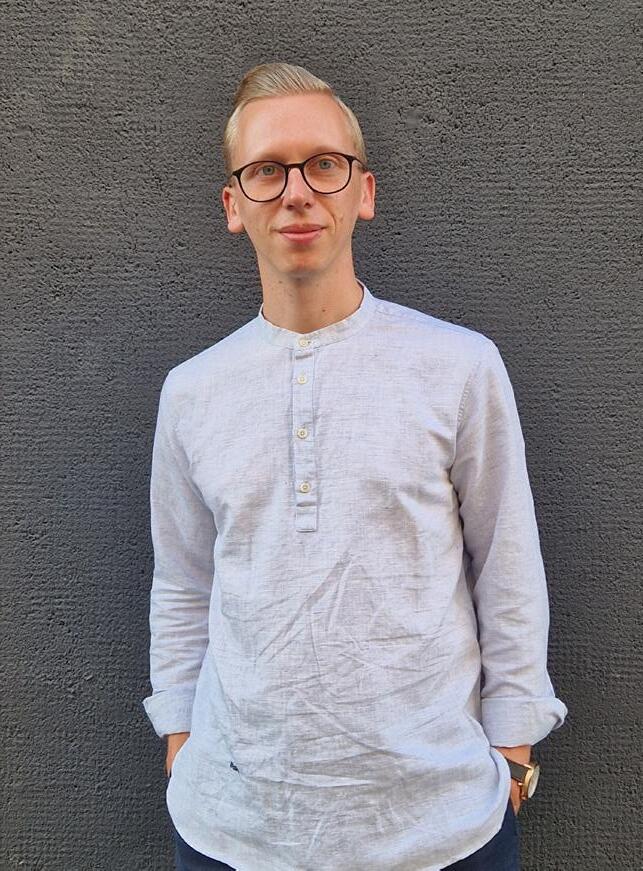

The Simple Pleasures of Bolognese and Chianti Classico
Martynas Pravilonis, Lithuania, Fourth Place ASI 2019 Best Sommelier of the World
To be completely honest, I am not very good at cooking. Most of the time the delicious meals I have at home are prepared by my wife Gabrielė. On the occasion when I do cook something I try to keep it simple. One of my kids’ all-time favourites is pasta Bolognese.
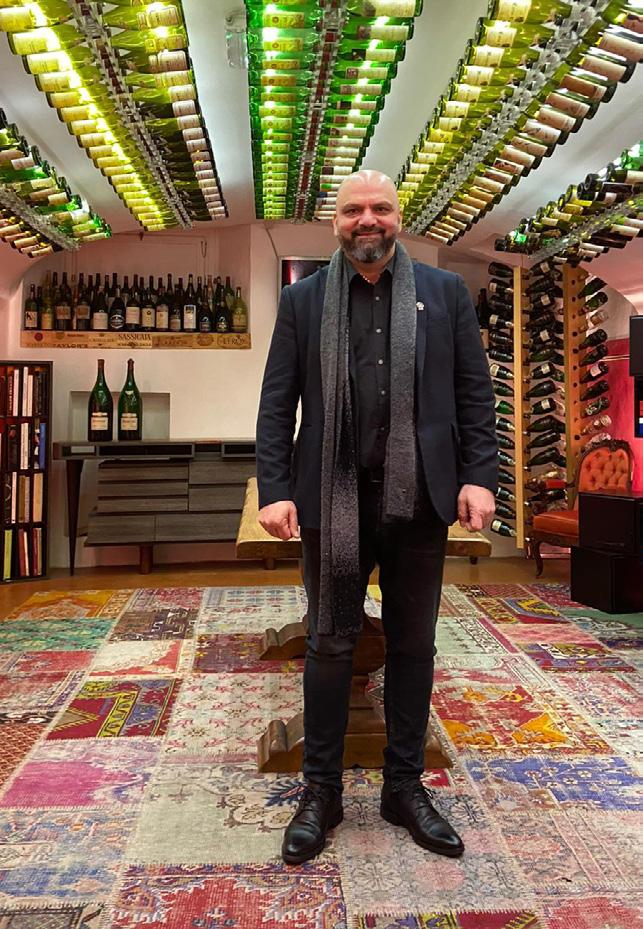
As simple as it is, it can be full of flavour, rich in texture, and truly indulging. If you give enough time for the meat and other ingredients to simmer with plenty of olive oil, you get rich, creamy, flavourful sauce which put on the pasta with copious amounts of Parmigiano Reggiano makes for one of the best dishes in the world! For a dish at home like that, I often open a good Chianti Classico, something on the younger side, made by producers who focus on 100 per cent
Sangiovese, such as Querciabella. It might sound like a boring pairing, but I really love these wines with their bright acidity, slightly grippy tannins, vivid red fruit flavours with a touch of spice. The wine's structure cuts very well through the richness of the sauce while the acidity matches that of tomatoes. Most often it makes for a very wellbalanced and delicious pairing.
The Comforts of Steak and Malbec
Joseph Mounayer, Lebanon, ASI Middle East Correspondent
On a day off I love making a simple meal consisting of a fresh salad accompanied by a perfectly grilled steak on the side. The salad, full of crisp greens, tomatoes, cucumbers and tossed in a light vinaigrette, is a refreshing complement to the rich, savory steak. For this meal at home, I’d choose a bottle of Malbec from Argentina. Malbec’s rich, dark fruit flavours and hints of spice pair wonderfully with steak, while its smooth tannins and balanced acidity also go well with the lightness of the salad. This combination makes for an easy, delicious, and satisfying meal on a precious day off.
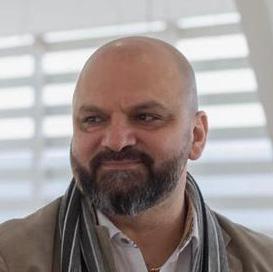
ASI Mag Regional Correspondent
Joseph Mounayer (Middle East)

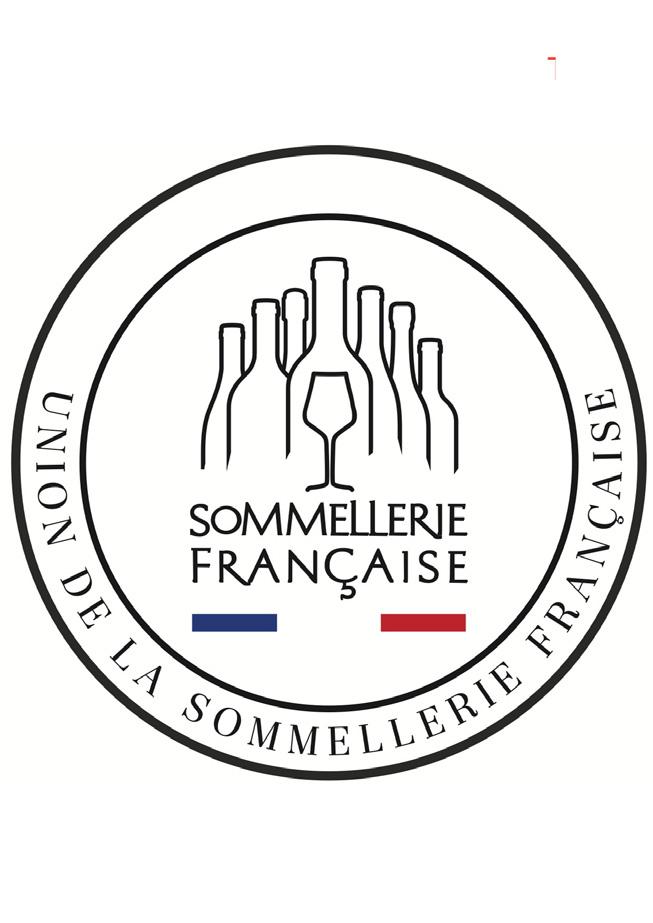
The Union de la Sommellerie Française (UDSF), established on June 3, 1969, is a pivotal organisation in France uniting sommeliers across the nation’s 24 regional member associations. The association aims to elevate the sommelier profession, promote industry know-how, and ensure the professional development of its 1,450 members. The UDSF is deeply involved in educational efforts, organising national competitions, and representing sommeliers nationally and internationally. It is currently led by President Fabrice Sommier, who took office in 2023, succeeding Philippe Faure-Brac. Supporting Sommier is Florent Martin (Secretary General), Caroline Fursoss (Deputy Secretary General), Xavier Thuizat (Treasurer), Frédéric Devautour (Assistant Treasurer) and regional directors (Frédéric Voné, Florian Balzeau, Bertrand Bijasson, Georges Gracia, and Thierry Kasprowicz). We asked Sommier about the future of the USDF under his direction.
ASI Best Sommelier of World Paris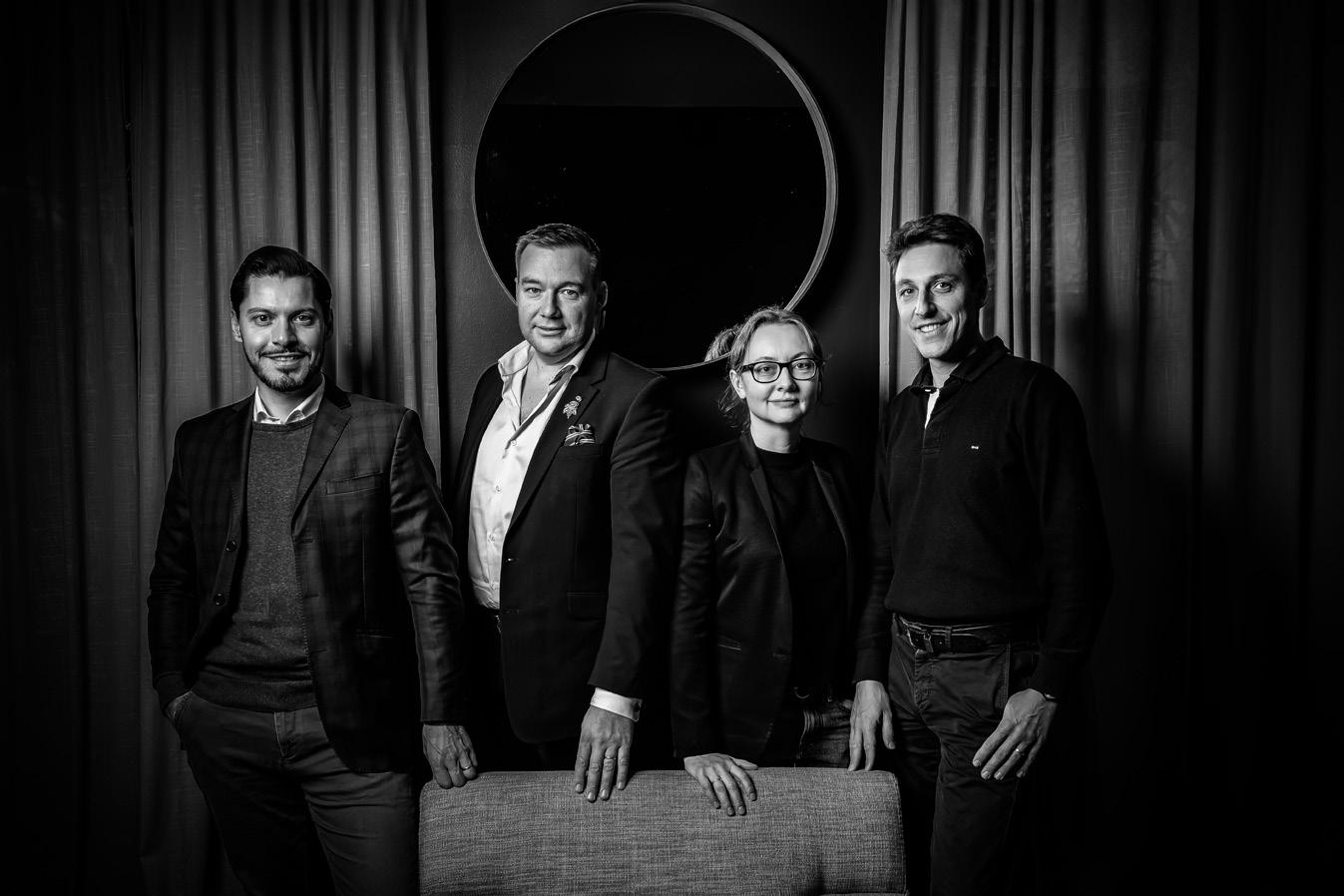
ASI: As a founding member of ASI do you think that the Union de la Sommellerie Française has an additional responsibility to ensure and promote the professionalism of the sommelier trade?
Fabrice Sommier (FS): The Union de la Sommellerie Française is indeed a founding member of the ASI. Over the past 55 years, the ASI has grown to include 70 members.
It's the combination of these 70 associations that makes international sommellerie so rich. In a very humble way, France is trying to make its contribution to the edifice: training and transmission.
Aware that international sommellerie is evolving, France is working to integrate itself into this new landscape and remains attentive to advances and involved in disseminating its new current of thoughts.
ASI: How do you measure the success of the Union de la Sommellerie Française? Is it members, number of events, partners/revenues, training opportunities, etc.?
FS: We're lucky to have over 1,400 members at the UDSF. That's both a lot and a little, given that our country has always wanted to shine through its gastronomy, its French art de vivre, which naturally

“Just as French gastronomy has evolved, sommellerie must continue to play a major role in this economic and gastronomic landscape.”
includes its wine, spirits and all the other beverages involved in the sommelier profession. However, we absolutely must be even more open-minded in welcoming, supporting and federating all the vital forces in our country's catering, wine and spirits’ trade.
With our 24 federated regions and their committed presidents, we can cover the whole of France and its overseas territories. This enables us to create recurring regional events that energise, maintain links and enable each member to progress.
An association is nothing without its members, but neither are its partners. We have the pleasure of being supported by top-quality partners who excel in each of their fields. They give us the means to be active in our developments with our members and future members.
ASI: Since you took over as President of the Union de la Sommellerie Française, what new initiatives have you put in place? What initiatives do you intend to implement?
FS: First of all, the first initiative is to continue, analyse and perpetuate what has been working for many years. The second initiative is to develop projects for young people, without forgetting our elders.
The third initiative is the formation of our French Sommelier Team: A small group of us sommeliers had a cigar and a brandy at the President's restaurant in Nîmes late one evening, when we talked about creating Team France. This idea was then put to our members the following day at the 2015 Annual General Meeting in Nîmes, chaired by Michel Hermet. The UDSF's finances at the time didn't allow us to ensure the perennial, complete and total preparation and implementation of the concept.
It took some time for the French team to get structured. As such, I
Fabrice Sommier Team France“An association is nothing without its members, but neither are its partners. We have the pleasure of being supported by top-quality partners who excel in each of their fields.”

decided to make it one of the three major pillars of my Presidency, with a clear determination to prepare not just one candidate, but a team in the Olympic spirit.
ASI: With the ASI 2023 World's Best Sommelier competition now a year behind you, are there any other major events you're preparing for?
FS: France was very proud to welcome the world to Paris for this magnificent Competition, which saw the triumph of an exciting and passionate sommelier in Raimonds Tomsons.
Despite the time-consuming preparation and abysmal economic cost of a competition of this magnitude, we have maintained our other national competition preparations.
Each year is punctuated by either a Concours du Meilleur Sommelier de France, or a Concours du Meilleur Jeune Sommelier de France and preparations for the Master of Port as well as one of the Meilleurs Ouvriers de France.
In November 2024, the 33rd Best Sommelier of France competition will take place.
Each year, we organise a sommelier festival in a different region, with the aim of sharing and showcasing everything that terroirs and territories have to offer (including wines, spirits, beers, etc.).
We're also preparing the Young Somm Festival 2024: a youth festival designed to bring young sommeliers together.
The major project for 2026 is the creation of the National Sommelier Exhibition, in the form of a large forum designed to introduce the sommelier profession to as many people as possible, from neophytes to enthusiasts.
ASI: How do you keep so many members involved in the association? Does it involve events, communications, etc.?
FS: There's a clear desire to welcome more members to accompany those already present. You always have to be better to seem at least as good. So, we absolutely must have a policy of promoting and explaining our profession.
For a very long time in France, sommellerie was only visible through palaces or top-of-the-range restaurants, often with Michelin stars. But even then, enthusiasts were telling their passionate customers all about sommellerie.
Just as French gastronomy has evolved, sommellerie must continue to play a major role in this economic and gastronomic landscape, evolving to welcome enthusiasts from all horizons and lovers of all beverages.
The ASI Sommelier and ASI Jury Guidelines have been updated. Following a meeting of the ASI Board, the following changes were discussed and approved for the ASI service guidelines for all ASI contests and judged service skills in ASI exams. According to the updates “as a general rule, the sommelier will let the host approve the wine / beverage and will then serve the guests clockwise, no matter their gender. One exception for serving first: a guest of honour mentioned by the host.” This alignment with the updated guidelines created in tandem between the that the ASI’s SCC and ECC (Exams & Education Committee).
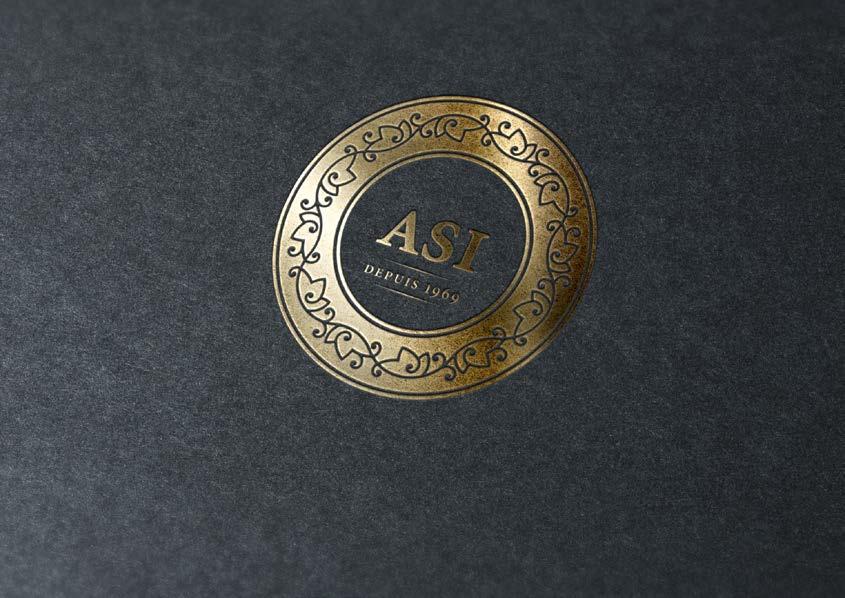
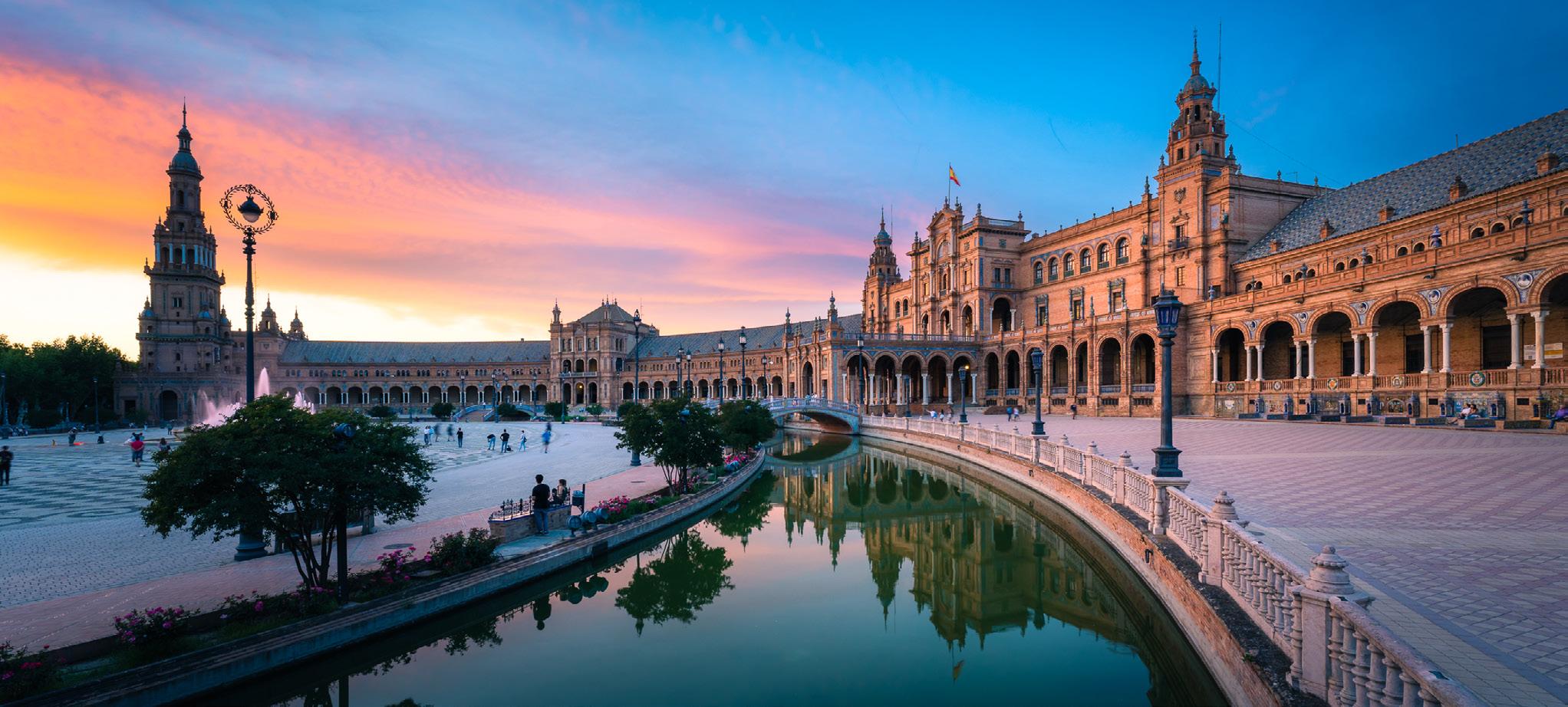
ASI is launching the 4th edition of its intensive training camp for sommeliers, the ASI Bootcamp, this autumn in Spain. This Bootcamp aims to include a larger group of sommeliers, and will focus on education, not just competition preparation. Gold Partners and special event partners will be present, contributing educational content about their regions, styles, and products. These Masterclasses will be conducted by world-leading experts, including several ASI Best Sommeliers of the World recipients, ASI Diploma holders, Masters of Wine, and Master Sommeliers. The Bootcamp, held from September 22nd to 26th at Hotel Silken Al Andalus in Sevilla, Spain, will host 50 participants.
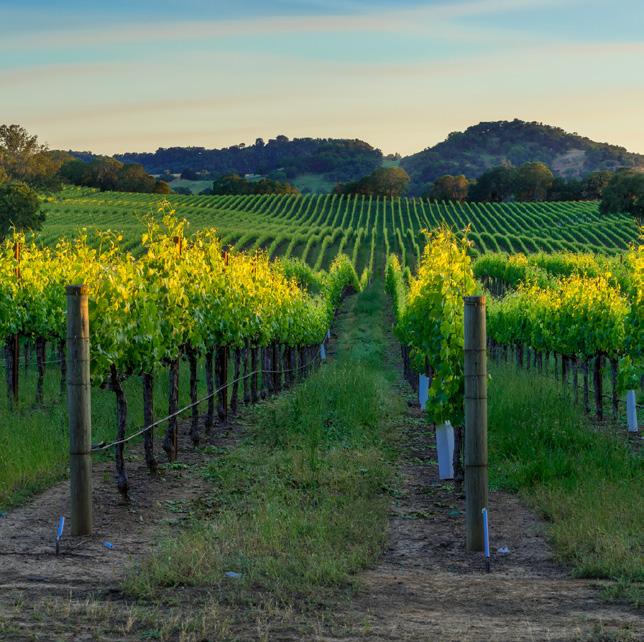
At the recent ASI General Assembly in Monaco, members voted in favour of hosting the ASI Best Sommelier of the Americas contest in California. The event will be hosted by BUSA President Evan Goldstein in Sonoma County, north of San Francisco. The event is scheduled to take place between February 17th and 20th, 2025 and will feature a range of Master Classes, wine tours and dining experiences featuring the best of Californian wines to the 16 competitors, judges, technical committee and visiting member association presidents and dignitaries.

Vinexpo Asia 2024 marked a significant return to Hong Kong, consolidating its role as a catalyst for growth in the Asian wine and spirits’ market. Held from May 28th-30th at the Hong Kong Convention and Exhibition Center, the event attracted 1,030 exhibitors and 14,200 trade visitors from 35 countries. Highlights included the WOW (Welcome to the Organic World) area and a comprehensive range of spirits. The Vinexpo Academy offered over 50 premium sessions, enhancing business relations, include two Masterclasses hosted by ASI.
Vinexpo Challenge: Another in the popular ASI and Vinexpo Blind Tasting Challenge was held at Vinexpo Asia 2024. This time it was led by Reeze Choi (3rd place,ASI Best Sommelier of the World 2023, 2nd place ASI Best Sommelier of Asia & Oceania 2018). Reeze selected 6 wines from Asia and Europe. He tested the audience on their ability to identify varietals, vintages and origins. The top three blind tasters from the crowd in attendance received prizes from Vinexpo Asia 2024 partners. During the masterclass Reeze also shared his tips and experience on how to blind taste.
Sommelier Battle: Also, a traditional format of ASI x Vinexpo masterclass with three ASI sommeliers: Chuan Ann Tan, semi-finalist of the ASI Best Sommelier of the World 2023/Best Sommelier of Malaysia 2022, Angela Allan, New Zealand Sommelier of The Year 2023, and Nutawan Jumpanak, Thailand’s Best Sommelier 2019 and Chilean Wine Trophy Winner 2019.
The sommeliers challenged each other to pair sparkling wines with Asian dishes. The sommeliers selected a Champagne, a New Zealand sparkling wine and a Franciacorta to pair with some local bites: Thai-style Chili Crab Buckwheat Blini with Tobiko Caviar, Glazed Quail with Corn Puree and Pistachio, Tandoori Chicken Lollipops with Minted Yogurt. Though the intention of the Sommelier Battle is always to find a pairing the audience prefers best, this time it was a draw. Each of the sommeliers paired the dishes exceptionally well and admirably defended the pairings to the audience.
Overall, Vinexpo Asia 2024 underscored Hong Kong's strategic importance, leveraging the area's significance for fostering international partnerships, crucial for economic growth in the wine and spirits industry.
Ukraine, though not widely recognised as a wine producing country is experiencing a remarkable revival in its winemaking industry, showcasing its rich history and diverse terroirs. The industry is being supported by its local sommelier industry, including the Association of Sommeliers of Ukraine (ASU), led by President Ivan Bachurin. With over 160 registered wineries, Ukraine is demonstrating its potential through viticultural and technological innovations, despite the challenges posed by the ongoing Russian invasion. Ukrainian winemakers have been gaining international recognition, winning over 150 medals in 2023, including prestigious awards from Decanter Worldwide Awards, IWC, and Berliner Wein Trophy. At the recent MUNDUS VINI Spring Tasting, SHABO Winery, Chateau Chizay, and Odesos Winery secured gold and silver medals. This past March, Ukrainian wineries participated in ProWein 2024 in Düsseldorf under the Wines of Ukraine brand, created by the Association of Craft Winemakers of Ukraine. Their debut last year garnered significant attention, and this year they presented 15 wineries and two spirit producers from across the country. Despite ongoing challenges, Ukrainian winemaking is gaining international acclaim and showcasing a bright future.
“Despite ongoing challenges, Ukrainian winemaking is gaining international acclaim and showcasing a bright future.”
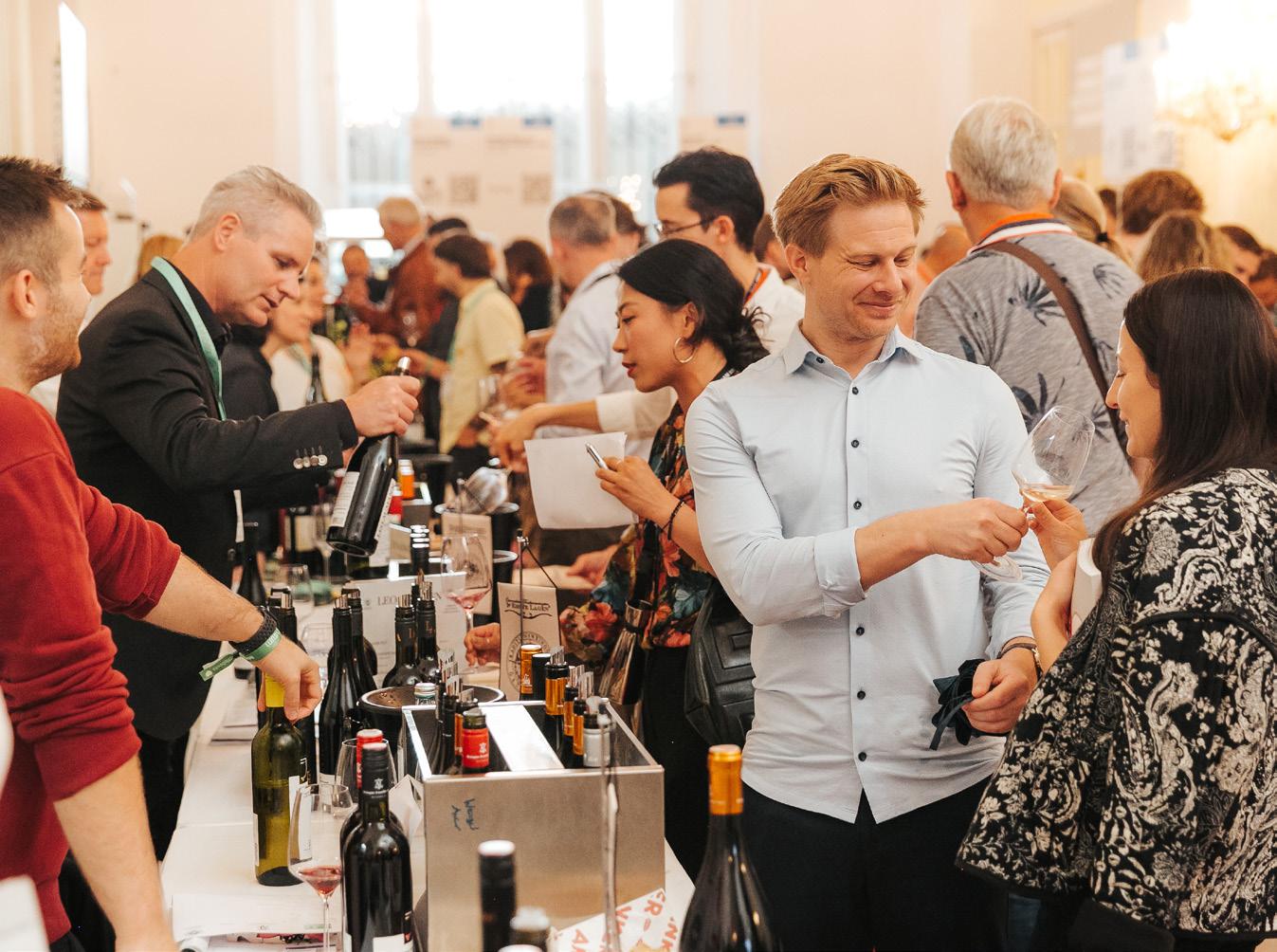
VieVinum 2024, Austria's largest wine fair, saw a record turnout with over 1,200 international wine professionals, including a large number of sommeliers. Held at Vienna’s Hofburg, the event featured 500 Austrian wineries showcasing their products. Chris Yorke, CEO of the Austrian Wine Marketing Board, highlighted the importance of this event for Austrian winemakers, given the challenging economic conditions. The fair included prominent figures include Raimonds Tomsons, reigning ASI Best Sommelier of the World, and multiple Masters of Wine, fostering global appreciation for Austrian wines. Additionally, Anne Krebiehl MW and Gerhard Retter received the inaugural Bacchus Prize for their contributions to Austrian wine.
Impressions of VieVinum 2024 (Photo: ÖWM / Philipp Lipiarski)contact@sommeliers-international.com
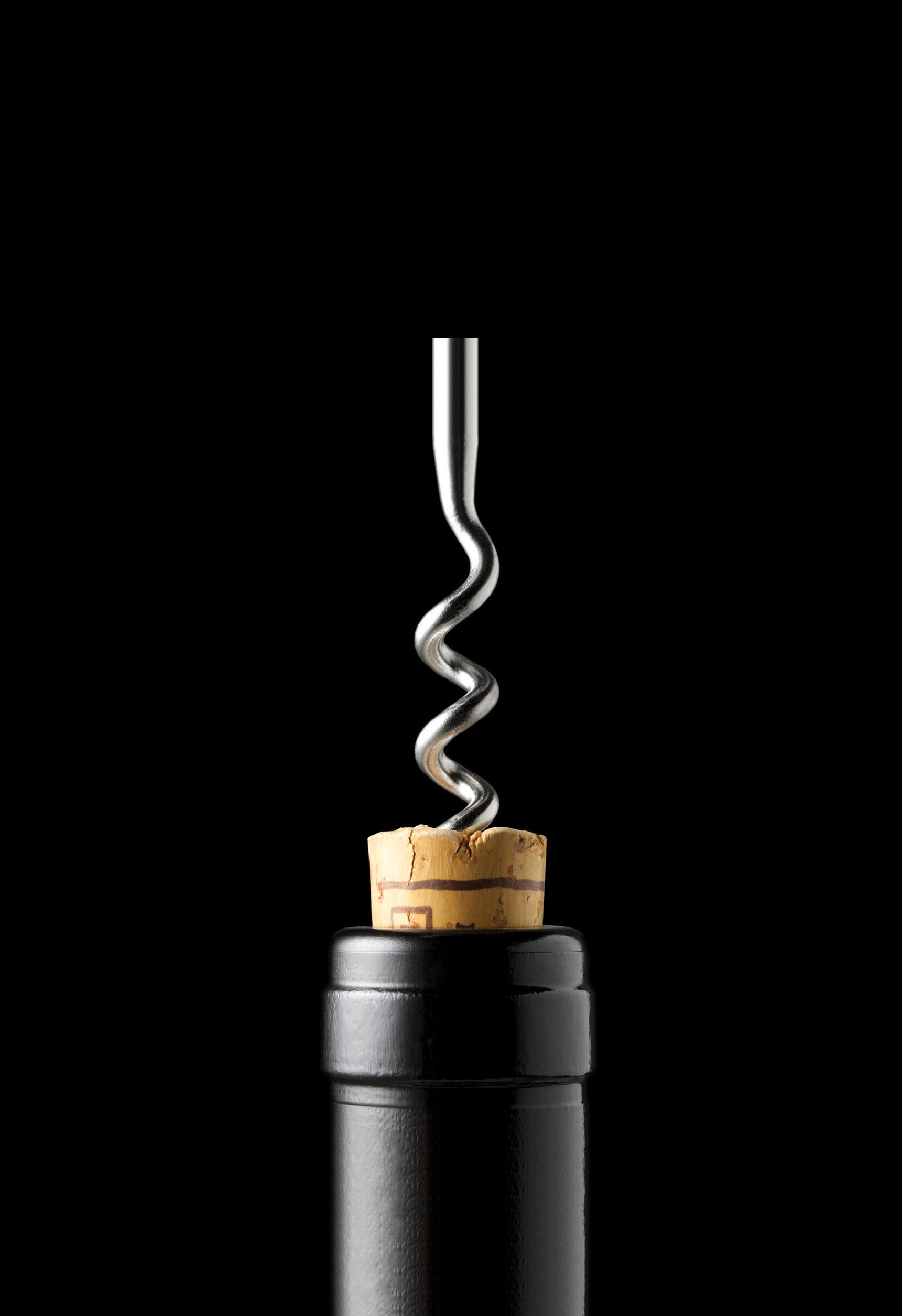
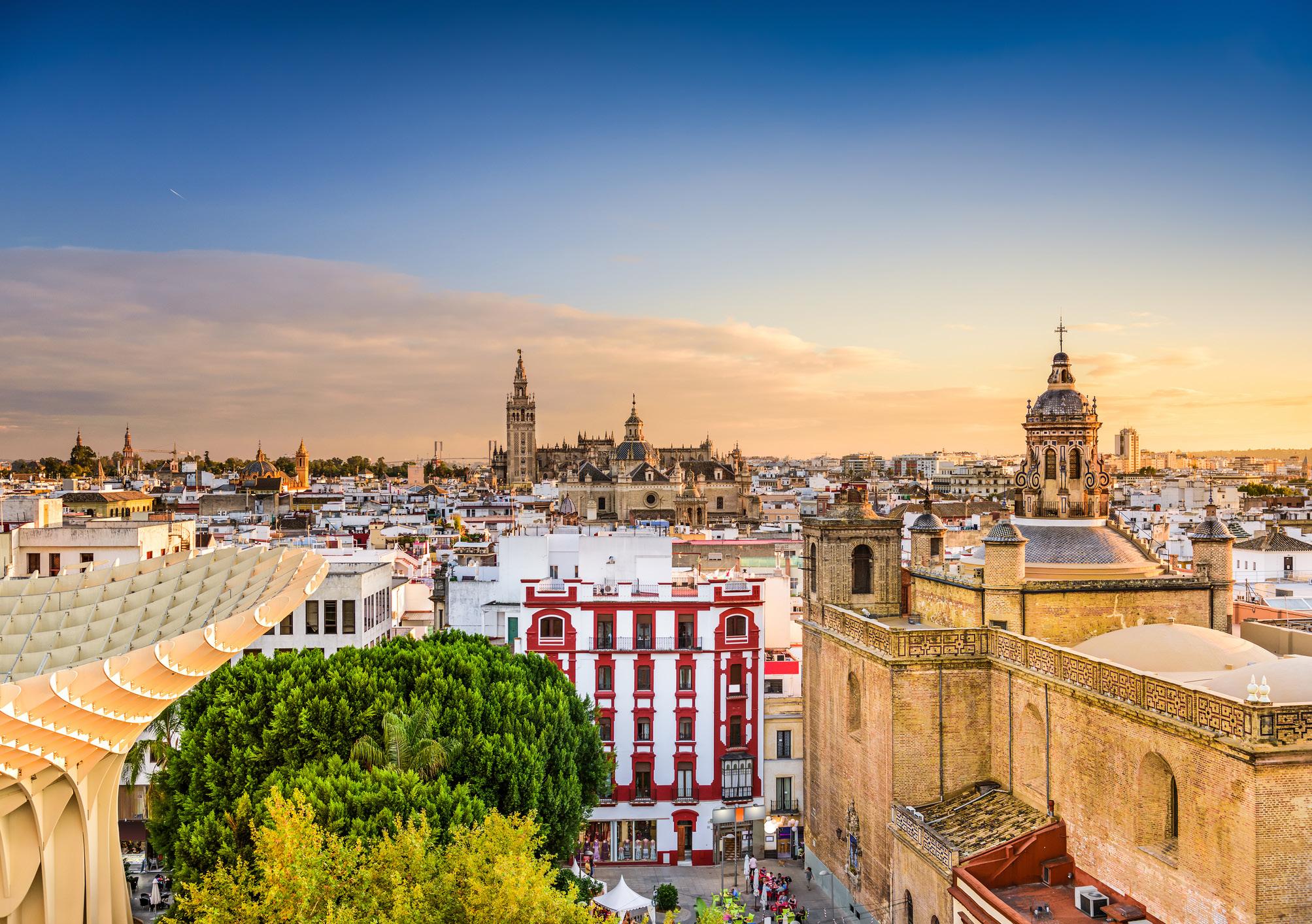
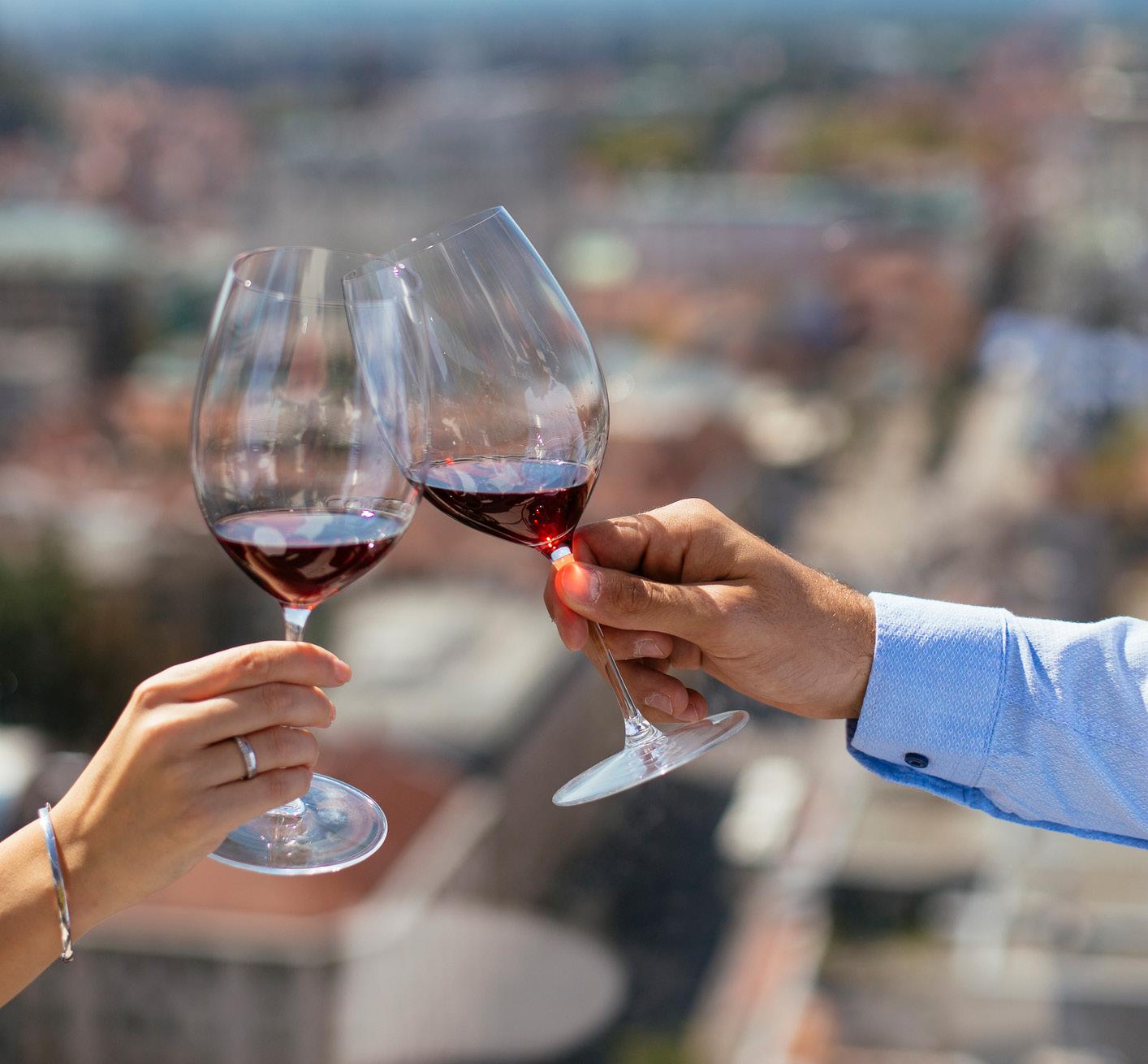
ASI CONTEST BEST SOMMELIER OF
& MIDDLE
BELGRADE, SERBIA NOV 11 - 15